Top 40 Athletes of the Title IX Era

Top 40 Athletes of the Title IX Era
Who made the grade?
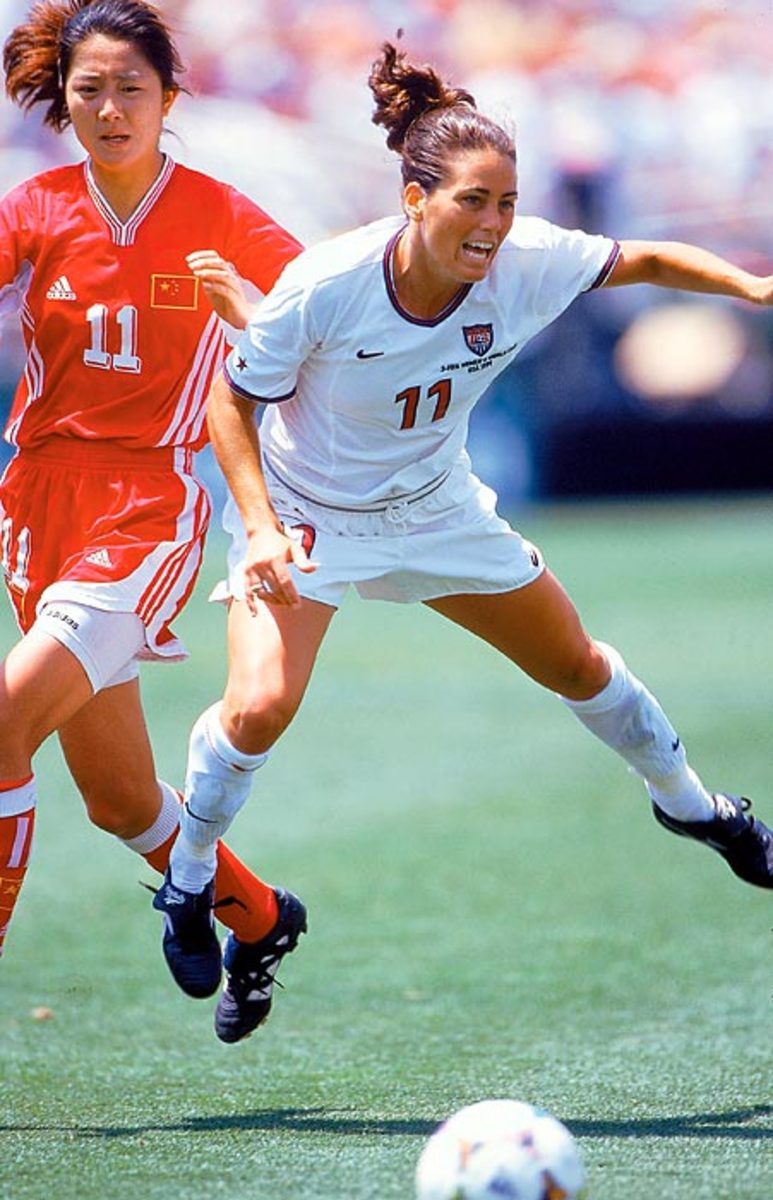
Considering the explosion of athletic opportunities over the last four decades, and the extraordinary women who have taken advantage of them , compiling a list of the top 40 female athletes of the Title IX era was a monumental undertaking. Paying homage to the original aim of the legislation -- increasing gender-equity in higher education -- we narrowed the pool of candidates with the stipulation that each had to have competed in a sport for at least one year at the college level. Doing so removed a host of worthy athletes such as Mary Lou Retton, Picabo Street and Venus Williams, but it opened up spots for many other women who also deserve accolades. After soliciting input from editors, producers and writers from the magazine and website, we present the top 40 female athletes of the last 40 years. Let the debate begin. (Send comments to siwriters@simail.com) #40 -- Julie Foudy Despite being one of the only women inducted into the National Soccer Hall of Fame, captaining Team USA to two gold medals, two World Cup championships and unprecedented popularity, Foudy's most enduring legacy is as a Title IX advocate. The Bush administration appointed Foudy in 2002 to a panel considering overhauling Title IX. Foudy co-authored a minority report defending the law and issued compelling testimony in front of Congress that helped persuade lawmakers to leave Title IX unchanged.
Courtney Kupets
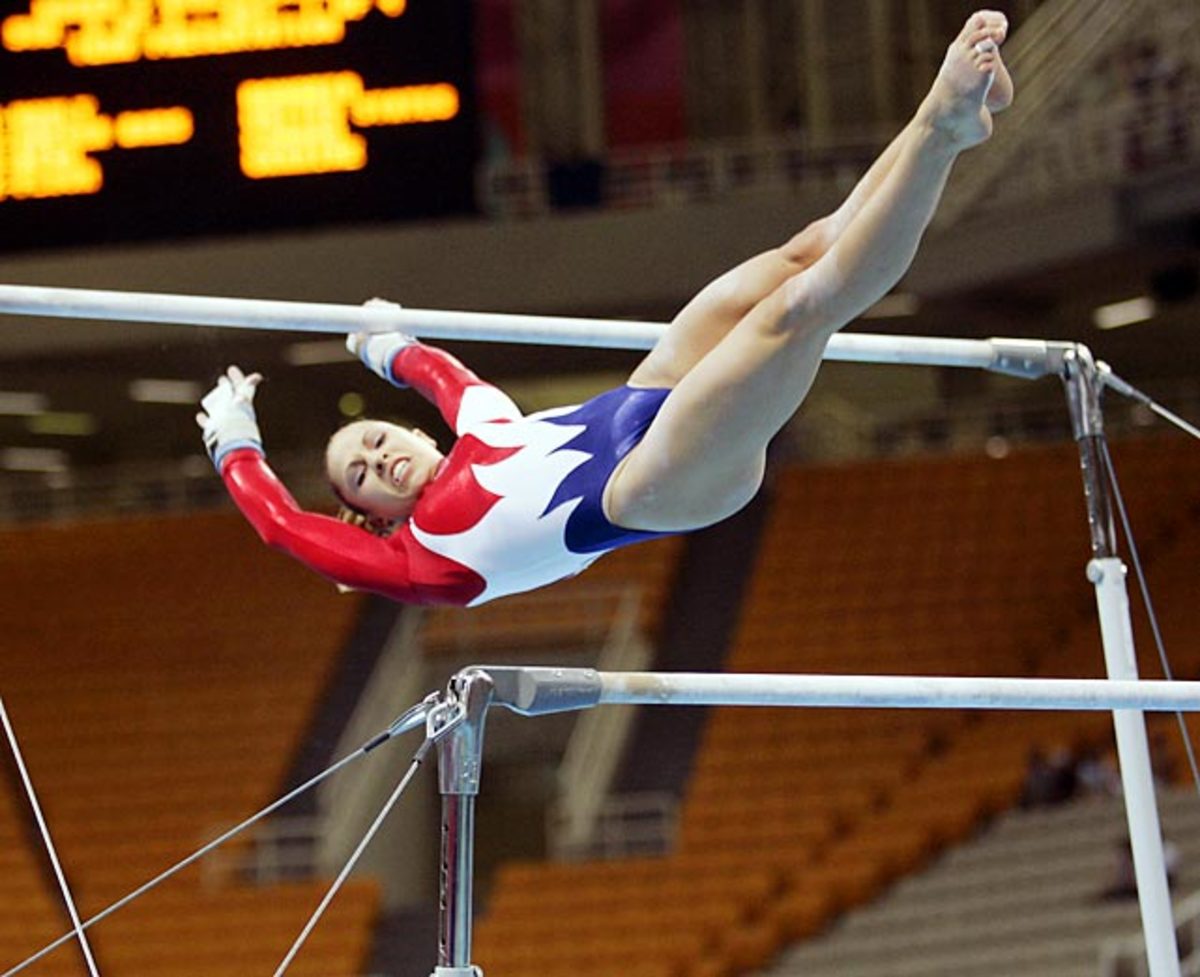
Her nine NCAA national titles at Georgia make her the most accomplished collegiate gymnast in history. She helped the Gym Dogs to their seventh national title. In 2003 and 2004, she won all-around national titles and earned a bronze medal in the uneven bars and a silver as a member of Team USA's 2004 Athens squad.
Jennie Finch
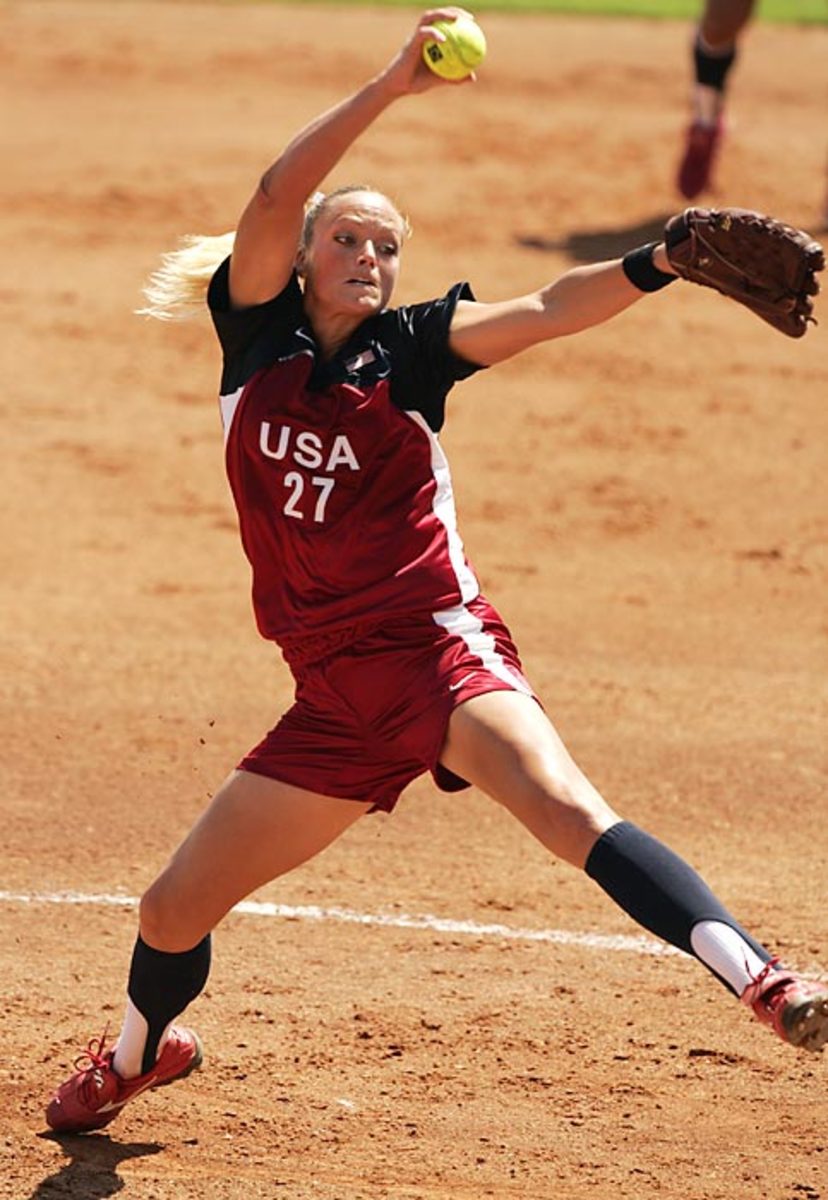
Led by Finch, the 2004 U.S. National team went 9-0 with eight consecutive shutouts and outscored opponents 51-1 for gold in Athens to become what SI called on its August 30, 2004 cover, "The Real Dream Team." Over her career, she piloted the national team to seven consecutive world championships before retiring in 2010. At the University of Arizona, Finch won 60 straight decisions and helped the Wildcats to the 2001 national crown.
Kelly Amonte
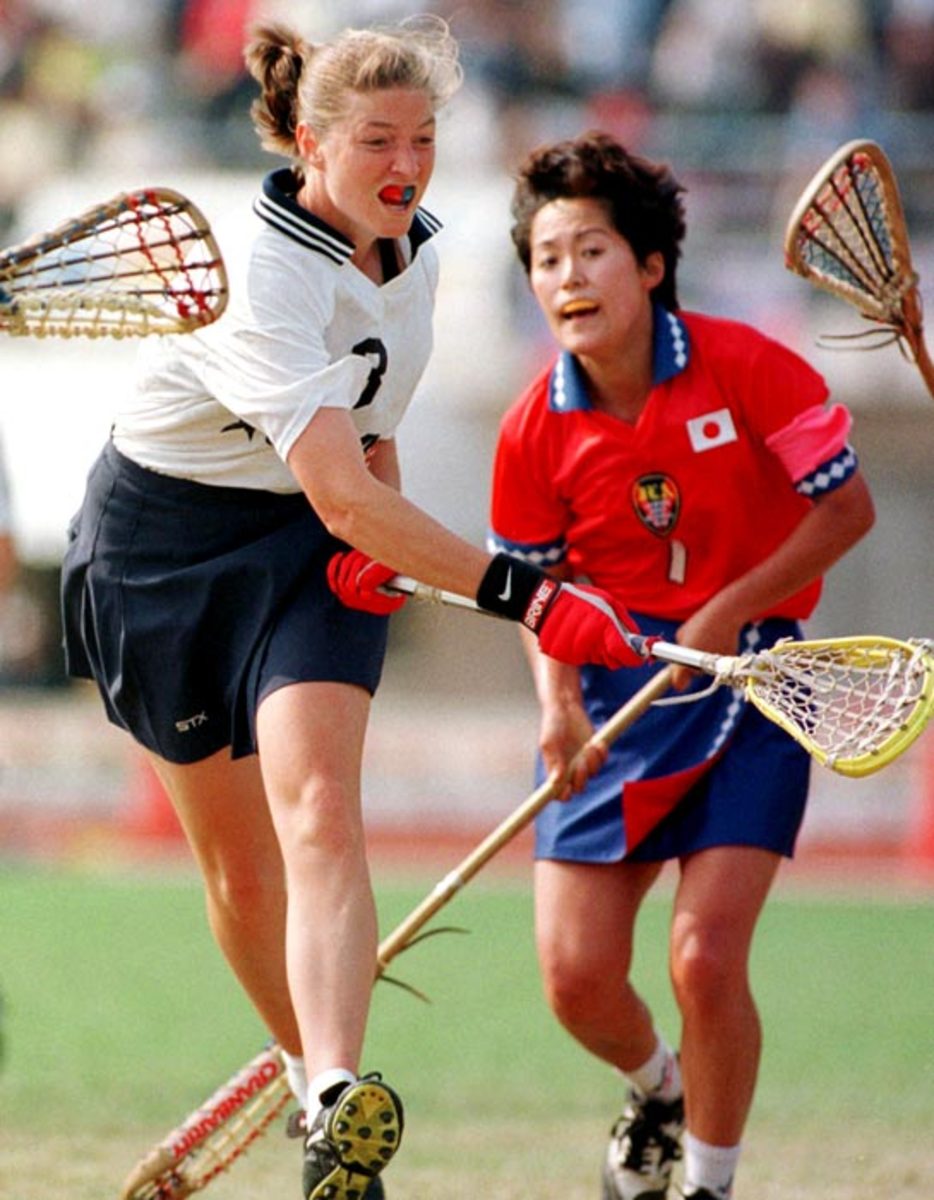
After leading the University of Maryland to consecutive national lacrosse championships in 1995 and 1996 -- and earning a pair of Player of the Year awards during the same span -- the Terps all-time leader in career goals, assists and points headed to Northwestern to take over its program as head coach. Under Amonte's leadership, in 2011 the Wildcats won their sixth title in seven years. She is a two-time National Coach of the Year.
Angela Ruggiero
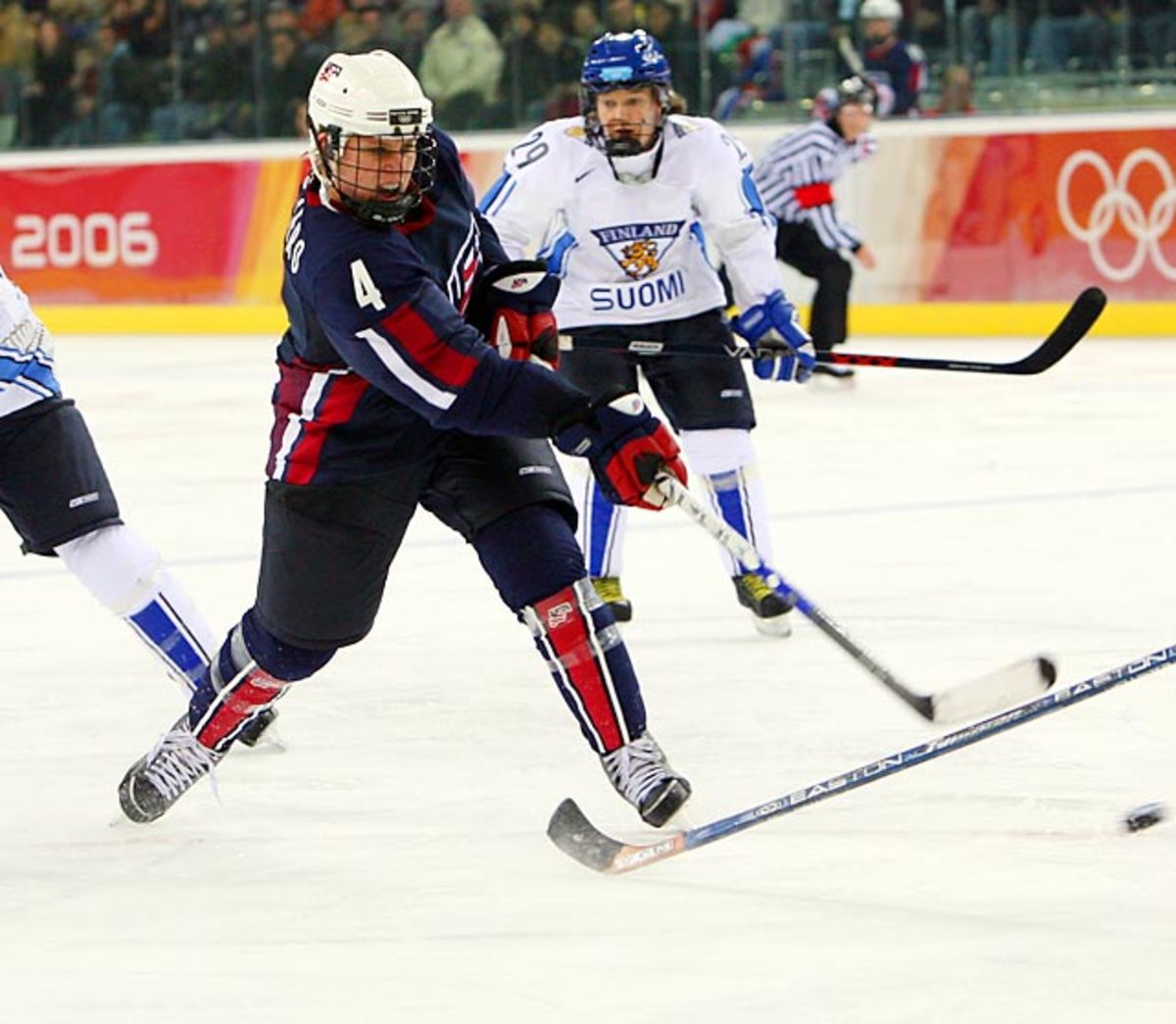
The all-time leader in games played for Team USA helped the country win the first gold medal in Olympic history at the 1998 Games. She continued steering the U.S. team in the next three Olympics, guiding it to two silver medals, one bronze and three world championships. In 2003, The Hockey News named her the No. 1 women's hockey player in the world. At Harvard, Ruggiero won the Patty Kazmaier Award in 2004, given to the nation's top female college hockey player. She made history in 2005 when she took to the ice for the Tulsa Oilers, becoming the first woman to play in a men's game at a position other than goalie.
Maya Moore
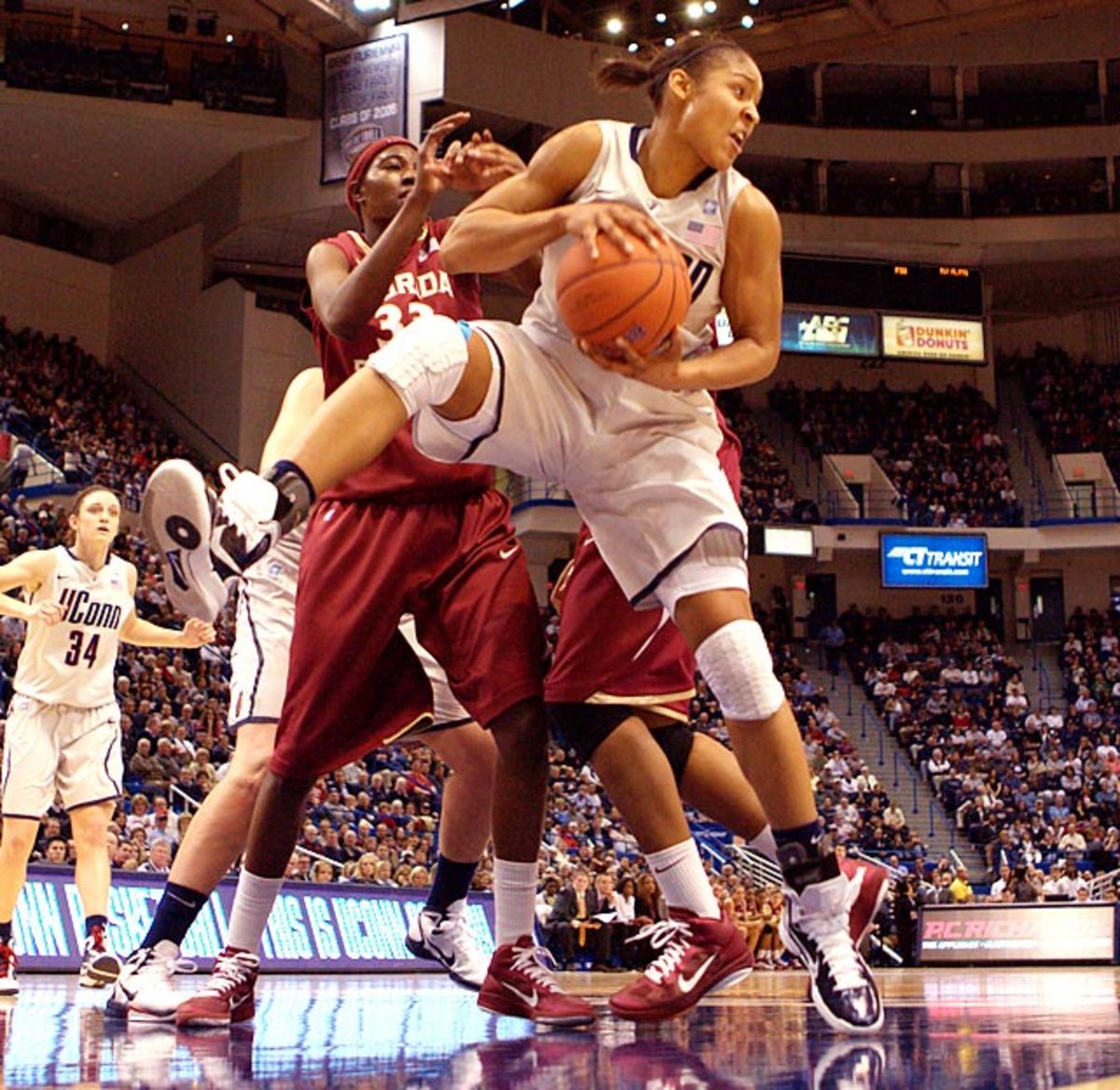
In 2011, Nike's Jordan Brand made Moore the first female it signed to an endorsement deal, and for good reason. UConn's all-time leading scorer (3,036 points) guided the Huskies to an NCAA-record 90 consecutive wins and a 150-4 record over four years, giving her more career wins than any man or woman in NCAA history. She ushered UConn to two NCAA titles, earning two Wade Trophies, two Wooden and Naismith Awards along the way. The Minnesota Lynx selected Moore with the first pick of the 2011 WNBA draft and she turned a franchise 13-21 the year before into winners of the 2011 WNBA finals.
Marion Jones
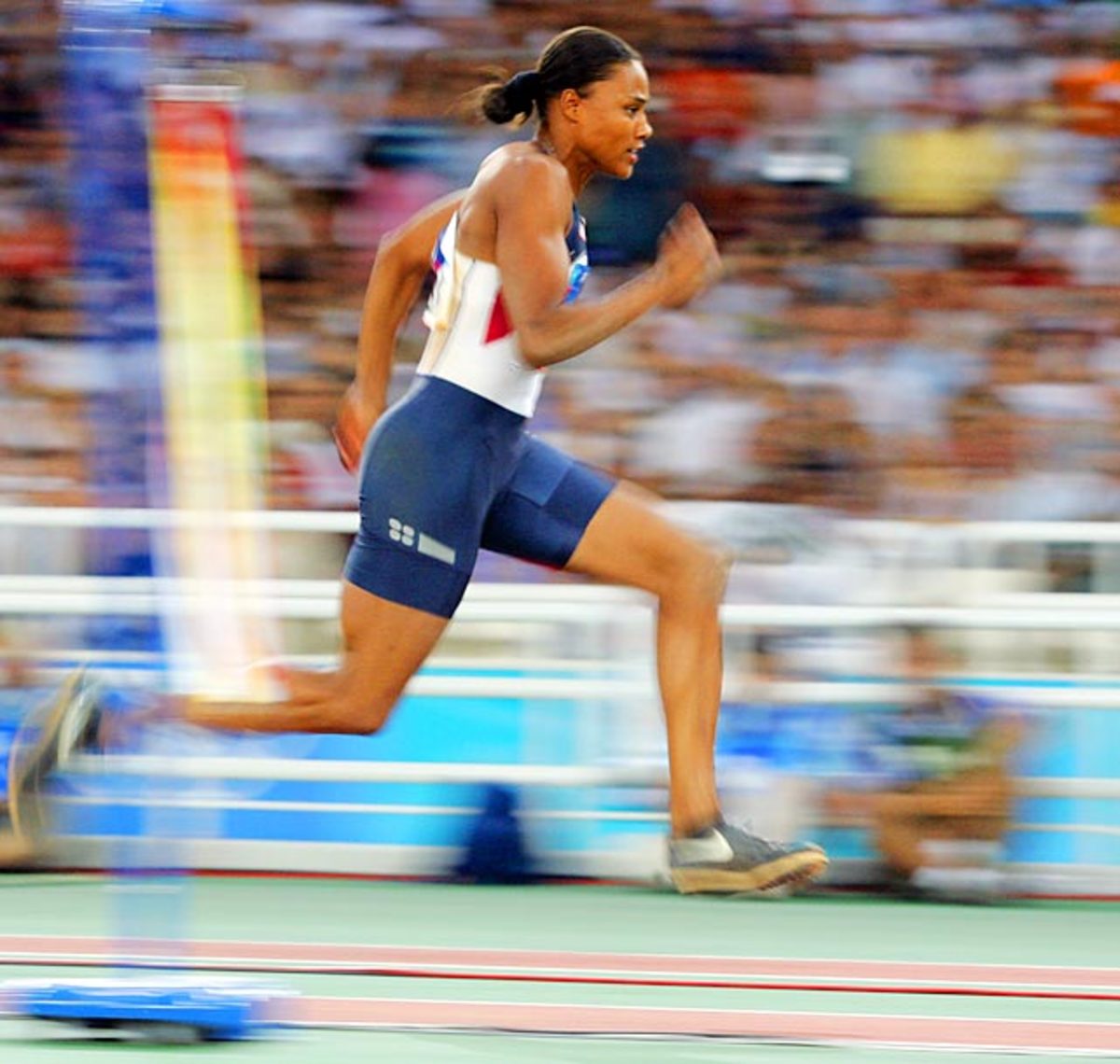
Perhaps the most controversial athlete on our list, Marion Jones became the first woman to win five gold medals in one Olympics -- at the 2000 Sydney Games. But in 2007, Jones returned the medals after admitting the use of performance-enhancing drugs. She served six months in federal prison for lying to investigators. At the University of North Carolina, Jones helped lead the basketball team to the 1994 NCAA Championship before turning her attention solely to track and field.
Kristine Lilly
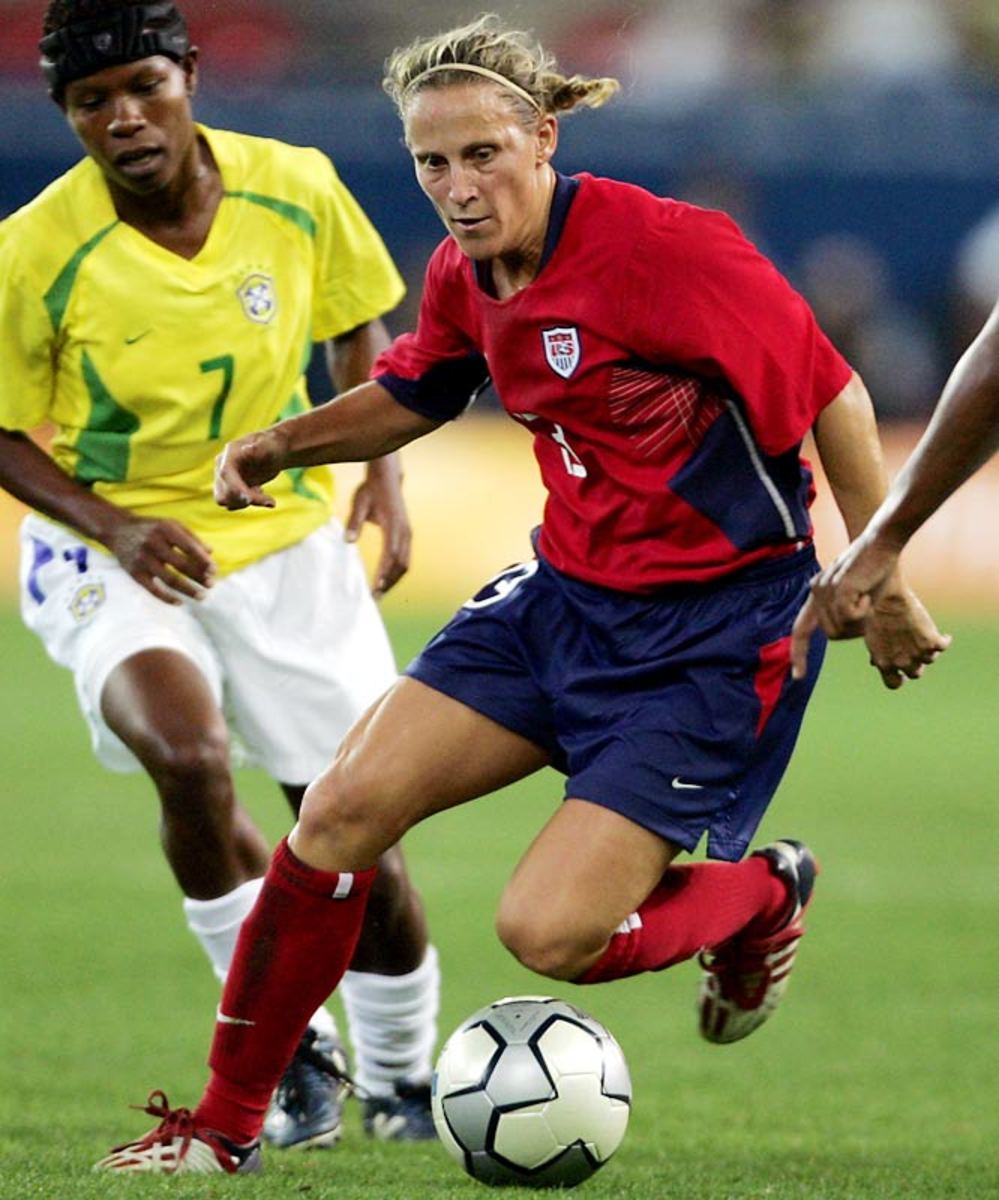
Lilly retired in 2011 as the world's all-time leader in appearances (352 caps). The three-time U.S. Soccer Athlete of the Year finished with 130 international goals and 105 career assists, second only to Mia Hamm in national team history. Before becoming both the youngest and oldest player to record goals for the U.S. in a career that spanned four decades, Lilly helped the University of North Carolina to four consecutive national titles. In 1994, the Tar Heels retired her No. 15 jersey.
Nancy Lieberman
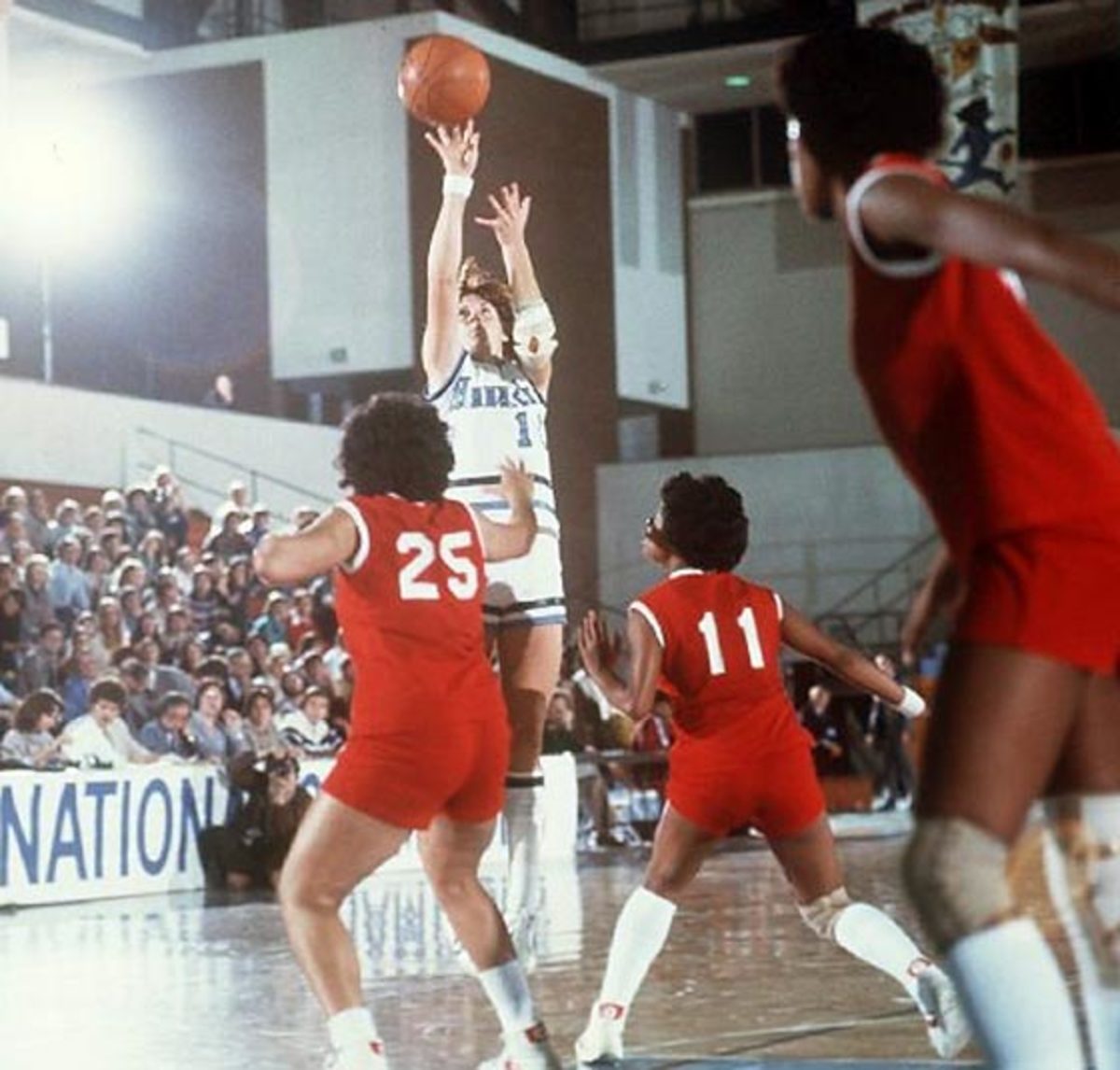
No-look passes earned the point guard the nickname "Lady Magic" and a slew of firsts. The first two-time winner of the Wade Award, given annually to the top female college basketball player, after she led Old Dominion to two national championships and a WNIT championship in the mid-1970s. The first woman to play in a men's professional sports league, when she joined the Springfield Fame of the USBL in 1986. The first female head coach of an NBA team, when in 2009 she guided the Dallas Maverick's D-League team, the Texas Legends, to the playoffs. The Naismith Basketball Hall of Famer currently serves as the Legends assistant general manager.
Abby Wambach
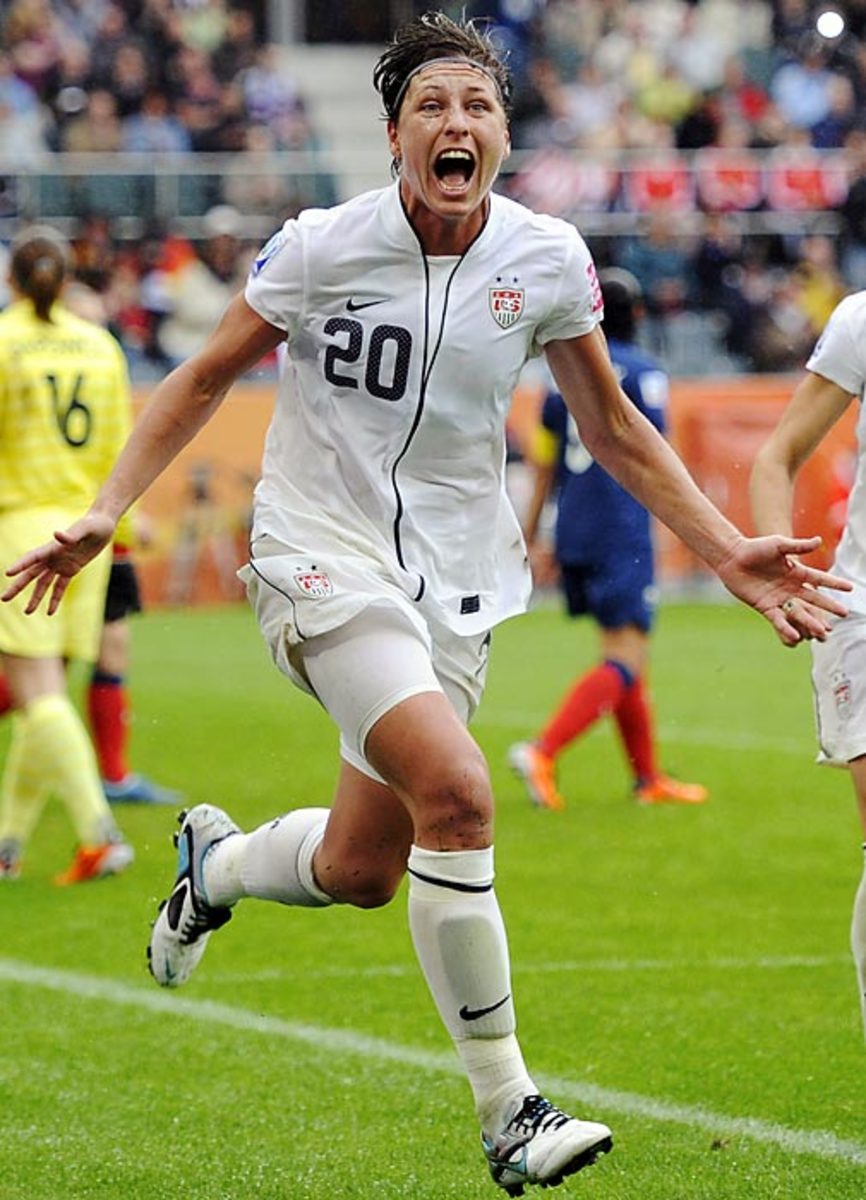
It's no pun to say Wambach plays head and shoulders above the competition. That's where the 5-foot-11 forward, famed for her aerial attacks. In 2004, Wambach headed a goal in extra time to give the U.S. a 2-1 win over Brazil and the gold medal in the World Cup. In the quarterfinals of the 2011 World Cup, she scored on another header, pushing the U.S. past Brazil again. The five-time U.S. Soccer Athlete of the Year led the now-defunct Washington Freedom to the WUSA's Founder's Cup title in 2004. At the University of Florida, Wambach set school records for goals (96), assists (49), points (241), game-winning goals (24) and hat tricks (10).
Evelyn Ashford
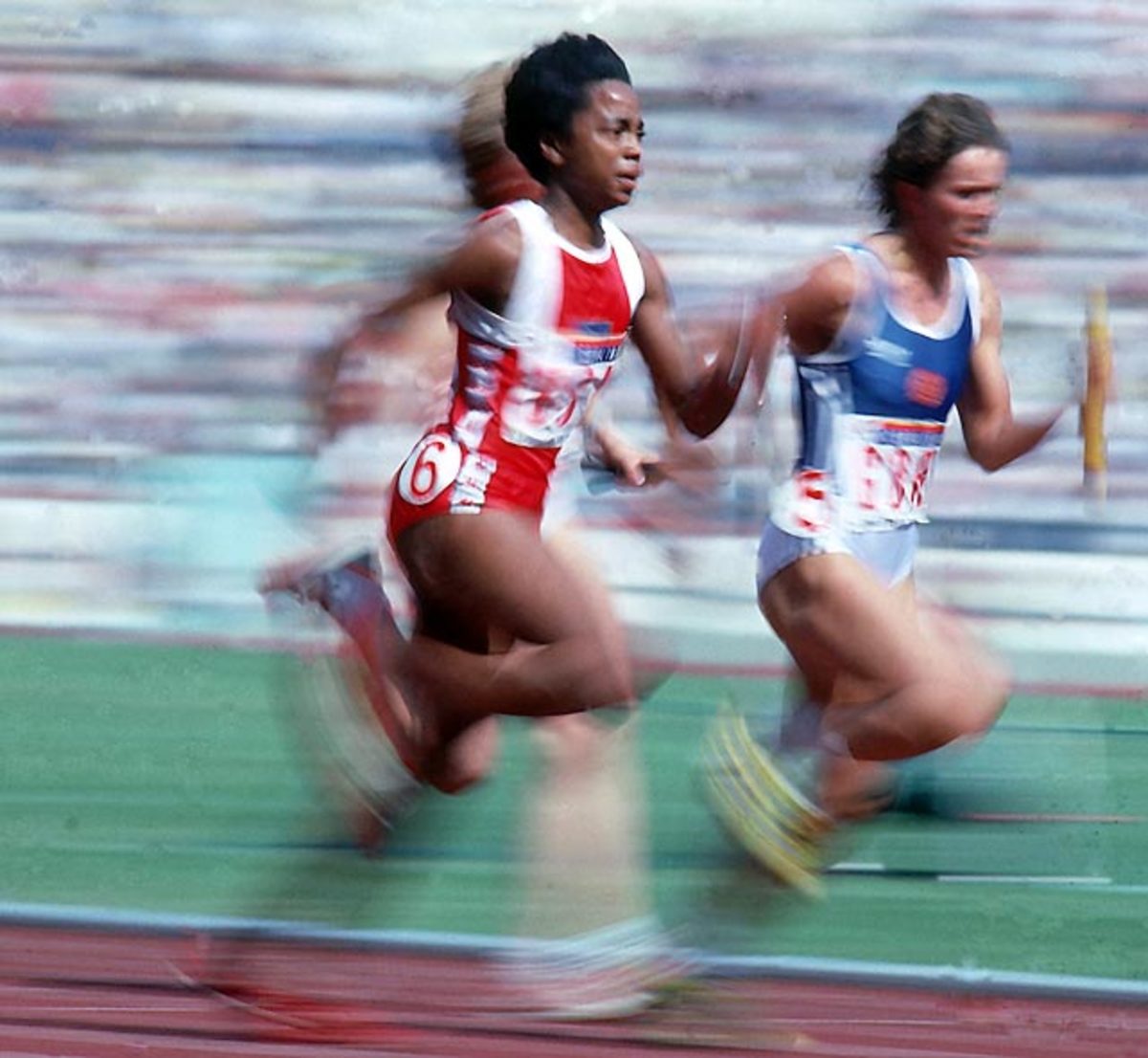
The recipient of one of the first female athletic scholarships at UCLA, Ashford rewarded the school by twice winning national championships in both the 100 and 200 meters. Ashford quit school in 1978 to train fulltime; the efforts paid off one year later when she defeated the East German world record holders in the 100 and 200-meter races at the 1979 World Cup. In 1996, at 35, Ashford became the oldest woman to win a gold medal in track and field as a member of the USA's 4x100 relay, closing a career that included four Olympic gold medals, a silver and two world records in the 100.
Sheryl Swoopes
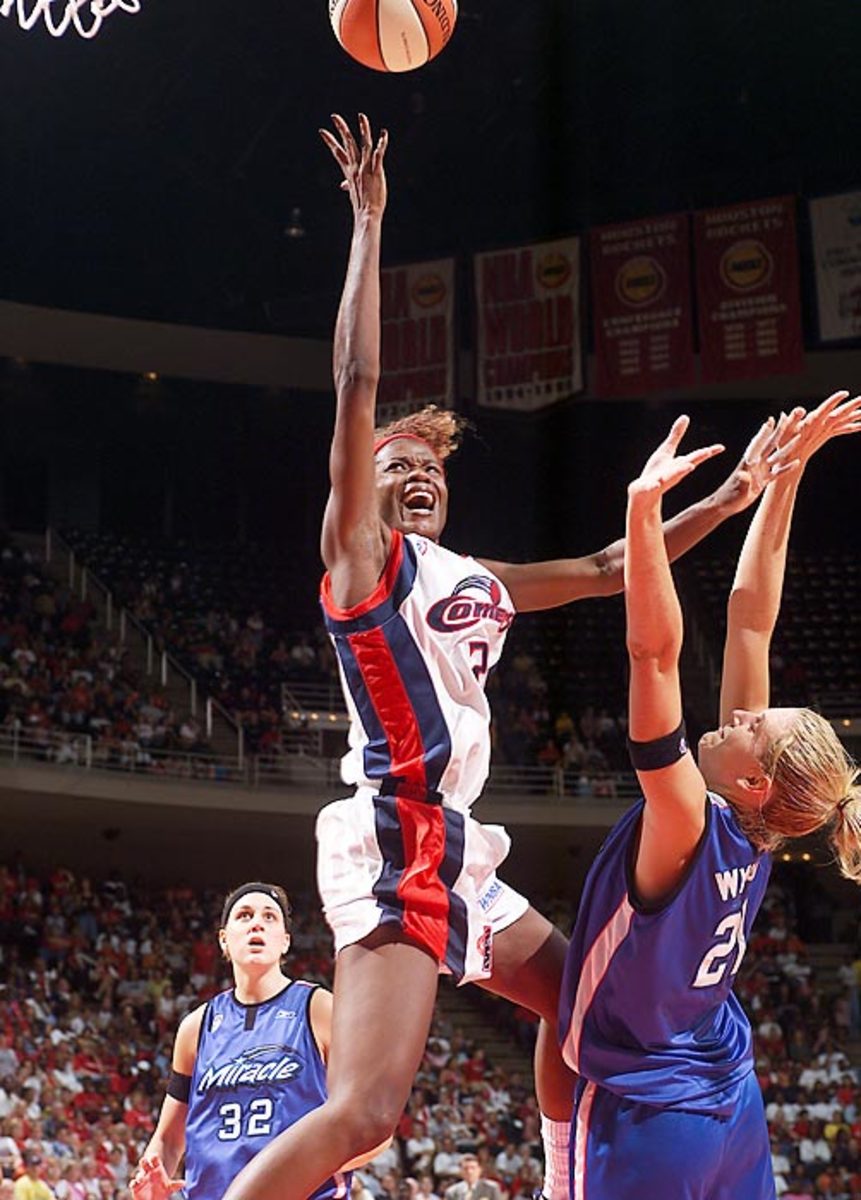
Two years after scoring an NCAA championship game-record 47 points for Texas Tech in 1993, Swoopes became the first woman to have a Nike basketball shoe named after her: the Air Swoopes. Wearing her signature shoe, Swoopes averaged 13 points in the 1996 Olympics to help the U.S. to gold. In 1997, she joined the Houston Comets of the WNBA and shepherded Houston to back-to-back titles. The three-time MVP became the first WNBA player to record a triple-double, doing so in a 1999 game against Detroit.
Lisa Leslie
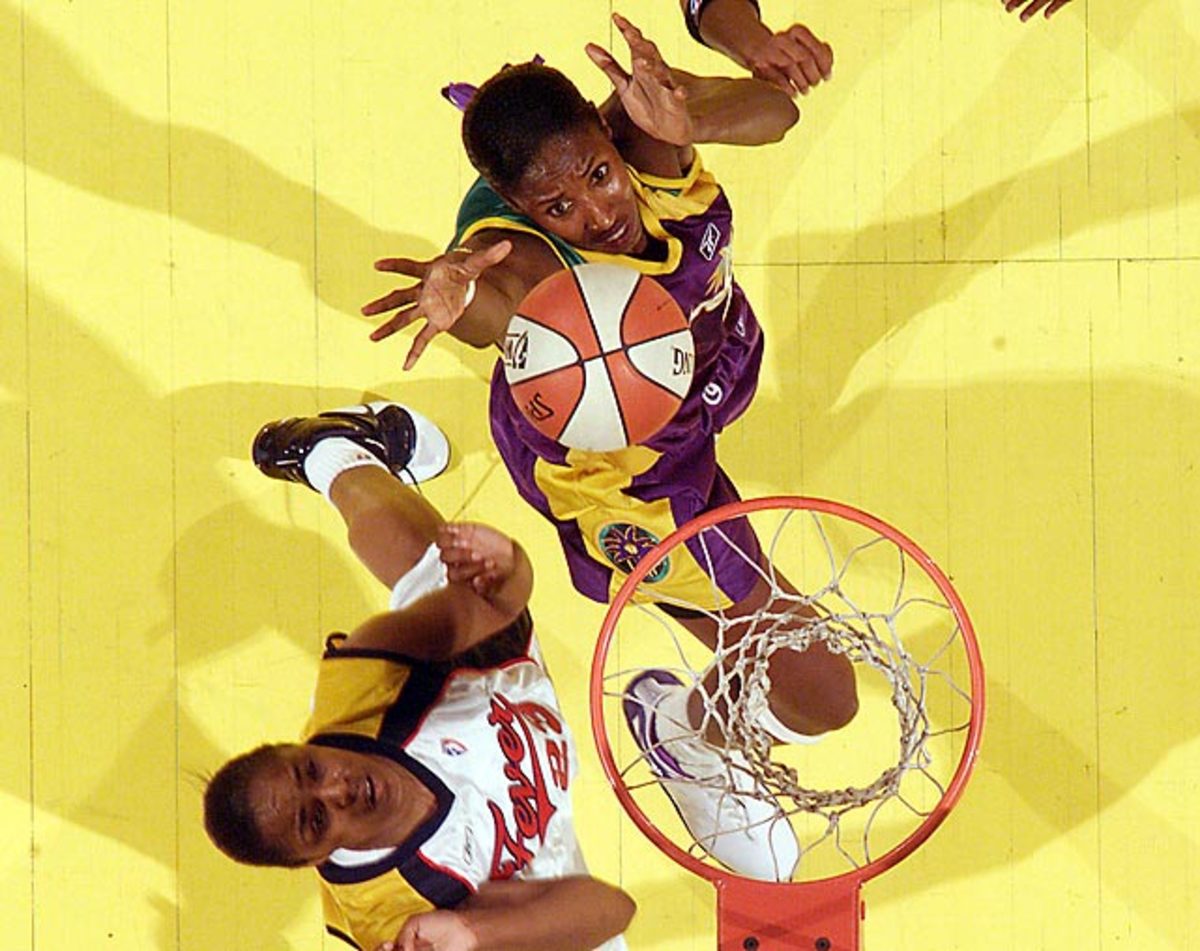
While Leslie's model looks may have garnered fans' attention, it was her on-court dominance that kept it. She graduated from the University of Southern California in 1994 as the Pac-10's all-time leader in points, rebounds and blocks. The 6'5" center headed for the WNBA in 1997, the league's inaugural season. In 2001, Leslie became the first player to win the regular season MVP, the All-Star Game MVP and the playoff MVP as she guided the Los Angeles Sparks to the first of two consecutive titles. In addition to her three MVP trophies, Leslie became the first team sport athlete to win four consecutive Olympic gold medals. She remains the WNBA's all-time leading scorer.
Shalane Flanagan
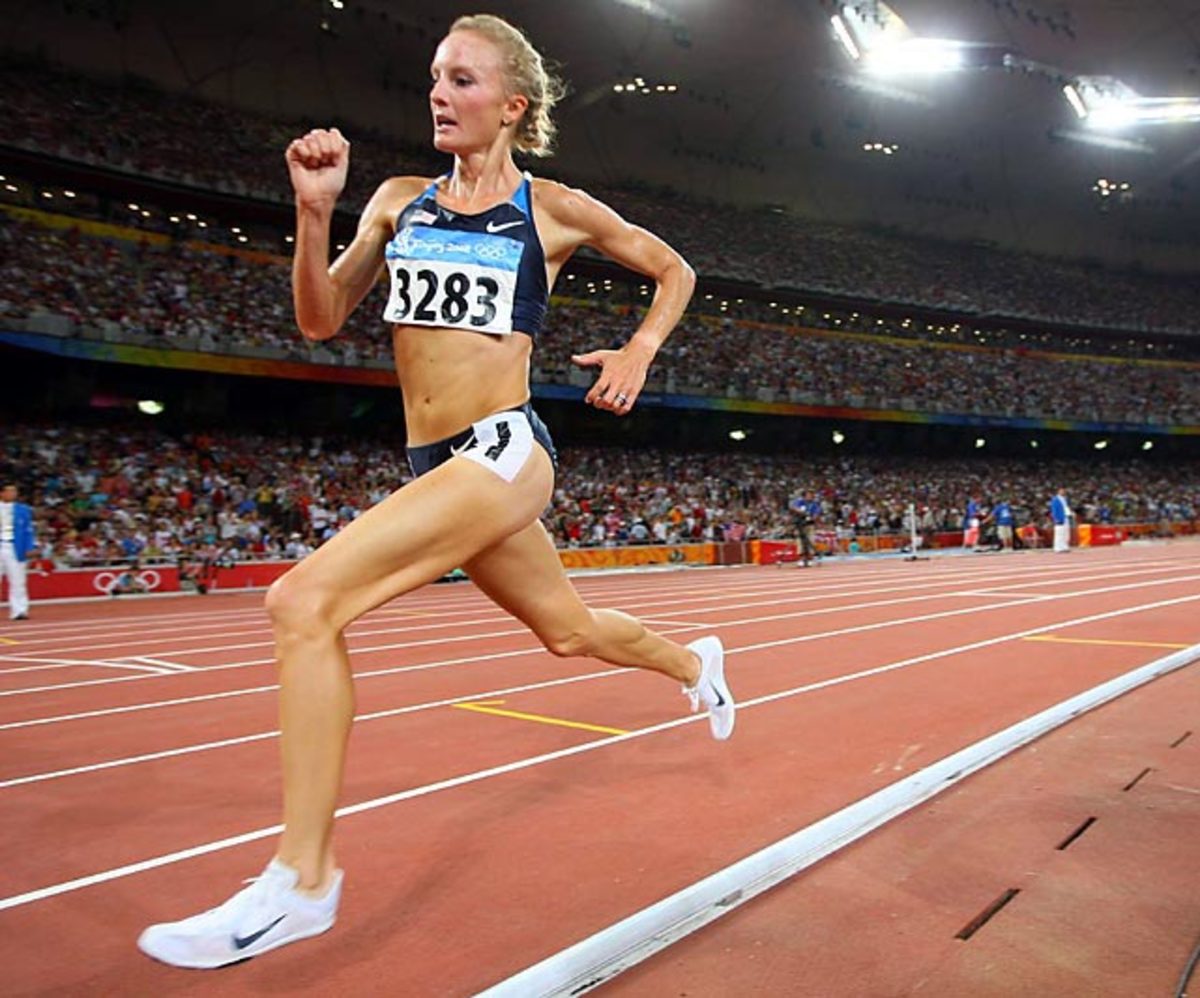
At the 2008 Beijing Games, Flanagan became the second American woman to win an Olympic medal in the 10,000 meters (the other is No. 24, Lynn Jennings) and set a new American record (30:22.22) in the process. She is a two-time national champion in the 5,000 meters and won two national cross country titles while competing for the University of North Carolina. Flanagan recently earned a spot on the 2012 Olympic team by winning the marathon team trials.
Lynette Woodard
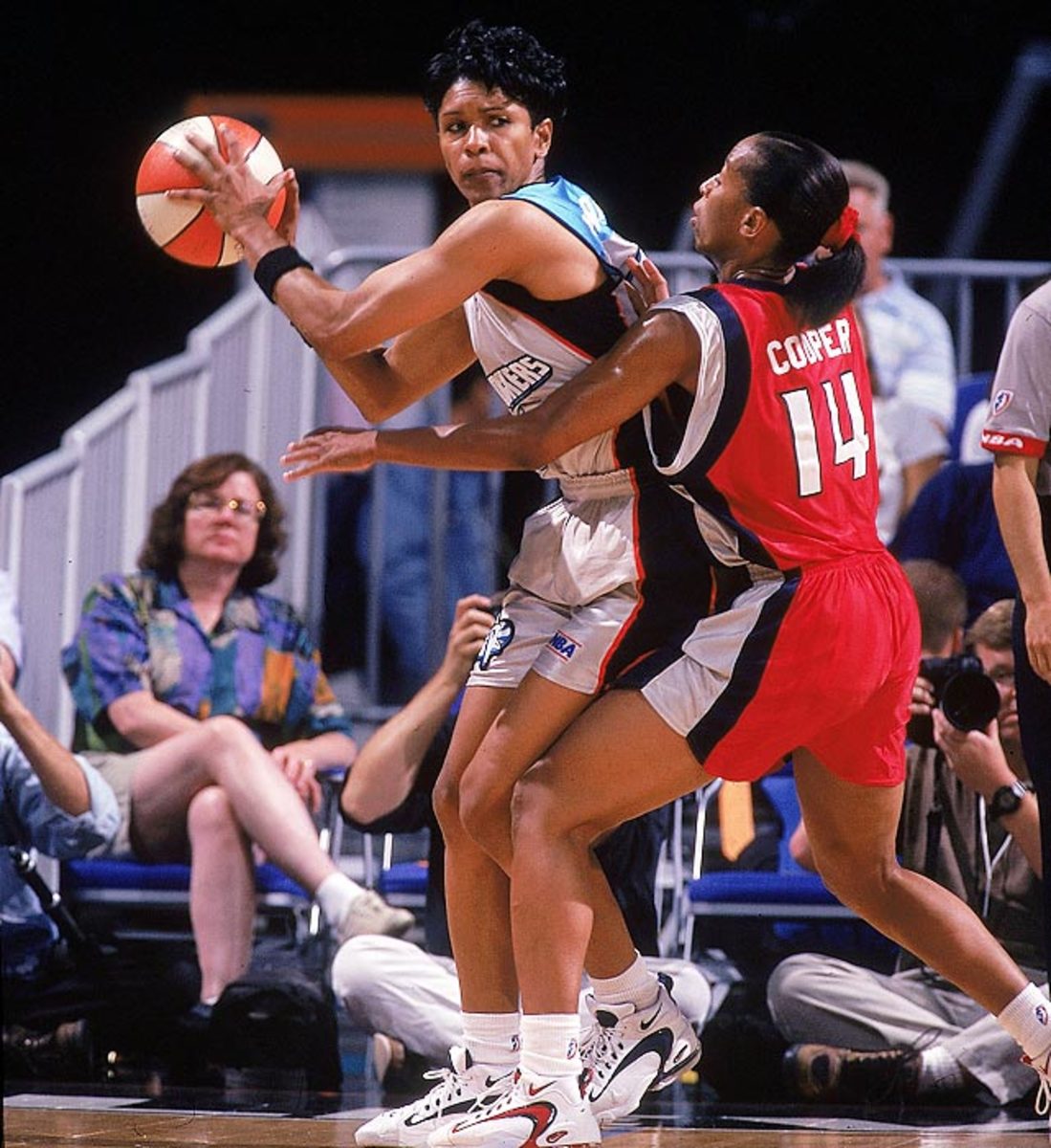
A four-time All-America at Kansas, Woodard was the top-scoring woman in NCAA history, averaging 26 points per game and amassing 3,649 during her career. She was the first female member of the Harlem Globetrotters.
Flo Hyman
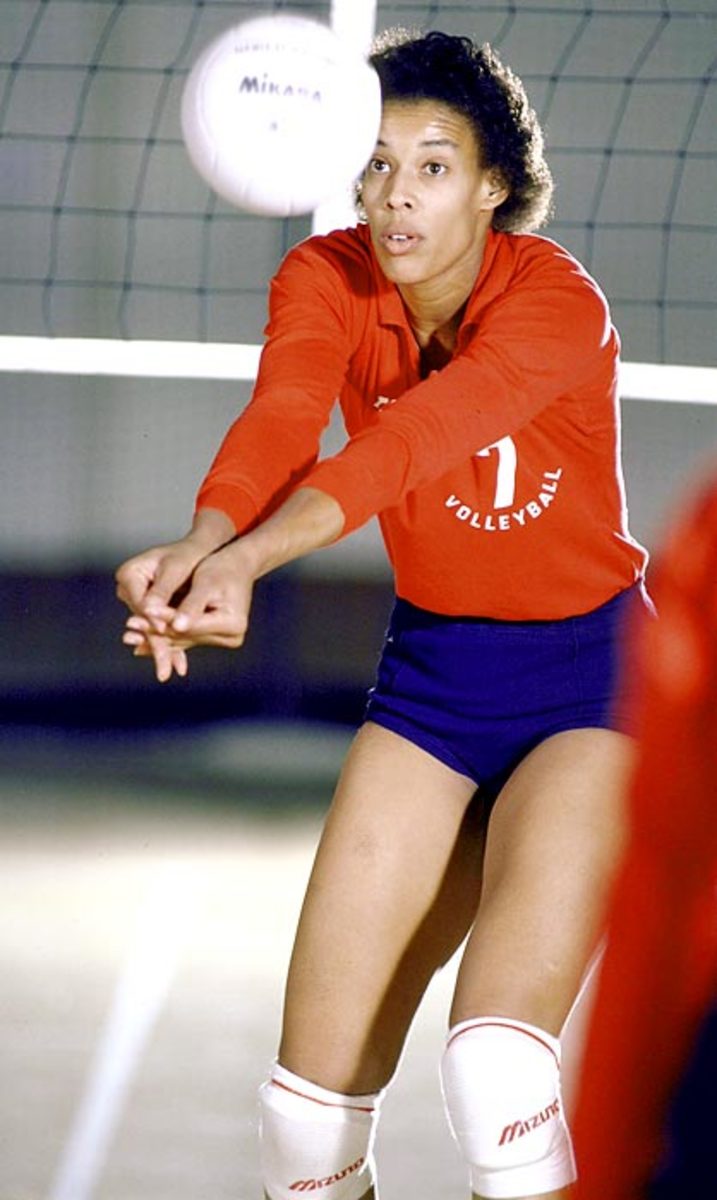
Often called the best volleyball player of all-time, the 6'5" hitter known as much for her devastating kills as for her kind heart played a crucial role in popularizing the game in the wake Title IX. The Californian rose to prominence as a three-time All America at the University of Houston but left school after her junior year, in 1974, to join the national team. At the 1984 Los Angeles Olympics, she guided the U.S. to a silver medal. On Jan. 24, 1986, Hyman collapsed during a match in Japan and died of what an autopsy revealed to be Marfan Syndrome, a connective tissue disorder she didn't know she had. From 1987 to 2004, the Women's Sports Foundation honored outstanding female athletes with the Flo Hyman Memorial Award.
Lynn Jennings
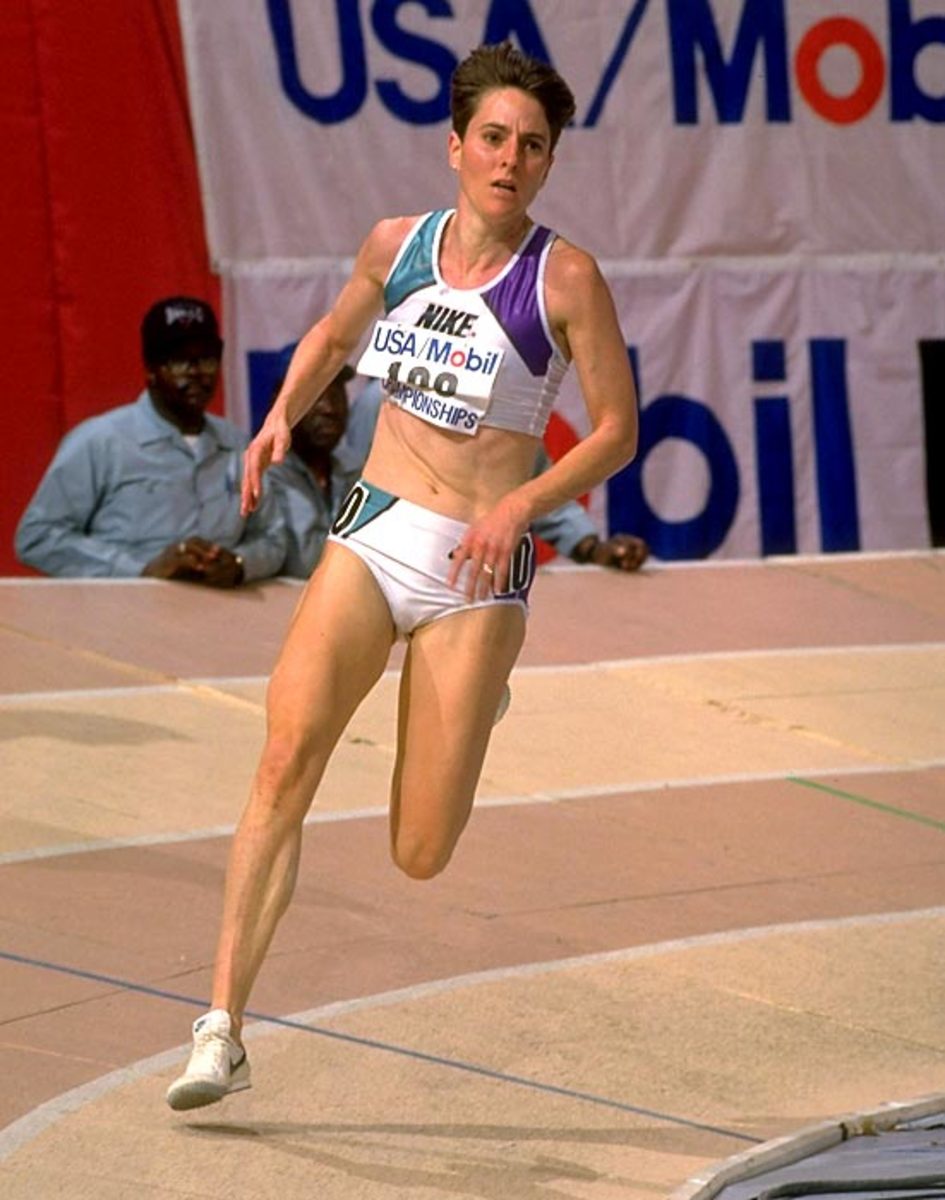
After getting her start on the boys' track team in 1977 at Bromfield High in Massachusetts, Jennings went on to set 10 American records and win nine National Cross Country titles and three World Cross Country championships. At the Barcelona Olympics in 1992, the former Princeton All-America set an American record of 31:19:89 en route to winning a bronze medal in the 10,000 meters.
Natalie Coughlin
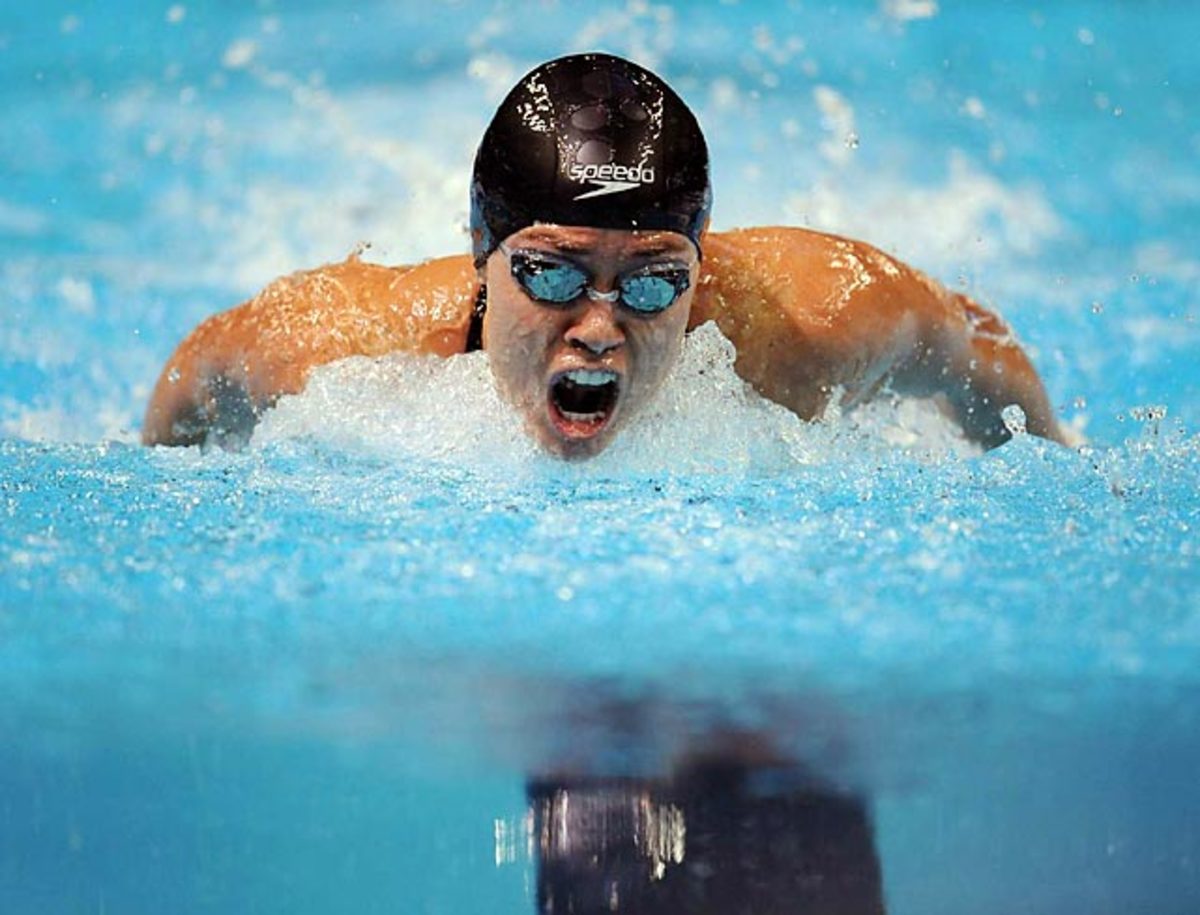
At the 2012 London Olympics, Coughlin will try to surpass Jenny Thompson's 12 Olympic medals to become the most successful American female swimmer in history. The 2005 Cal-Berkeley graduate owns 11 Olympic medals -- three gold, four silver, and four bronze. She has medaled in every Olympic event she's entered. At the 2008 Beijing Games, Thompson became the first woman in Olympic history to win back-to-back gold medals in the 100-meter backstroke.
Deena Kastor
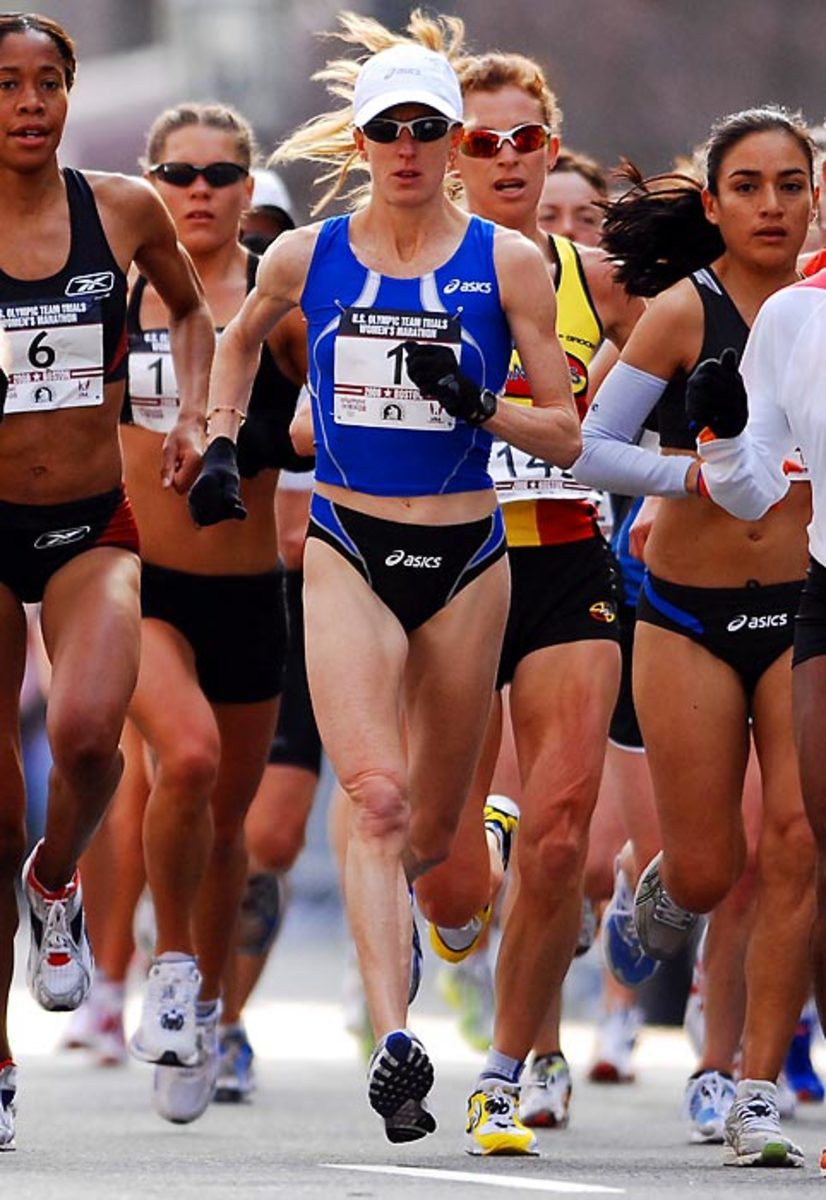
A seven-time SEC titleholder at Arkansas, the former Razorback went on to become just the second American woman to win an Olympic medal in the marathon when she placed third at the 2004 Athens Games. Two years later, she broke her own American record in the half marathon with a time of 1:07:34 in Berlin. She smashed the American marathon record by running a 2:19:36 in the Flora London Marathon.
Chamique Holdsclaw
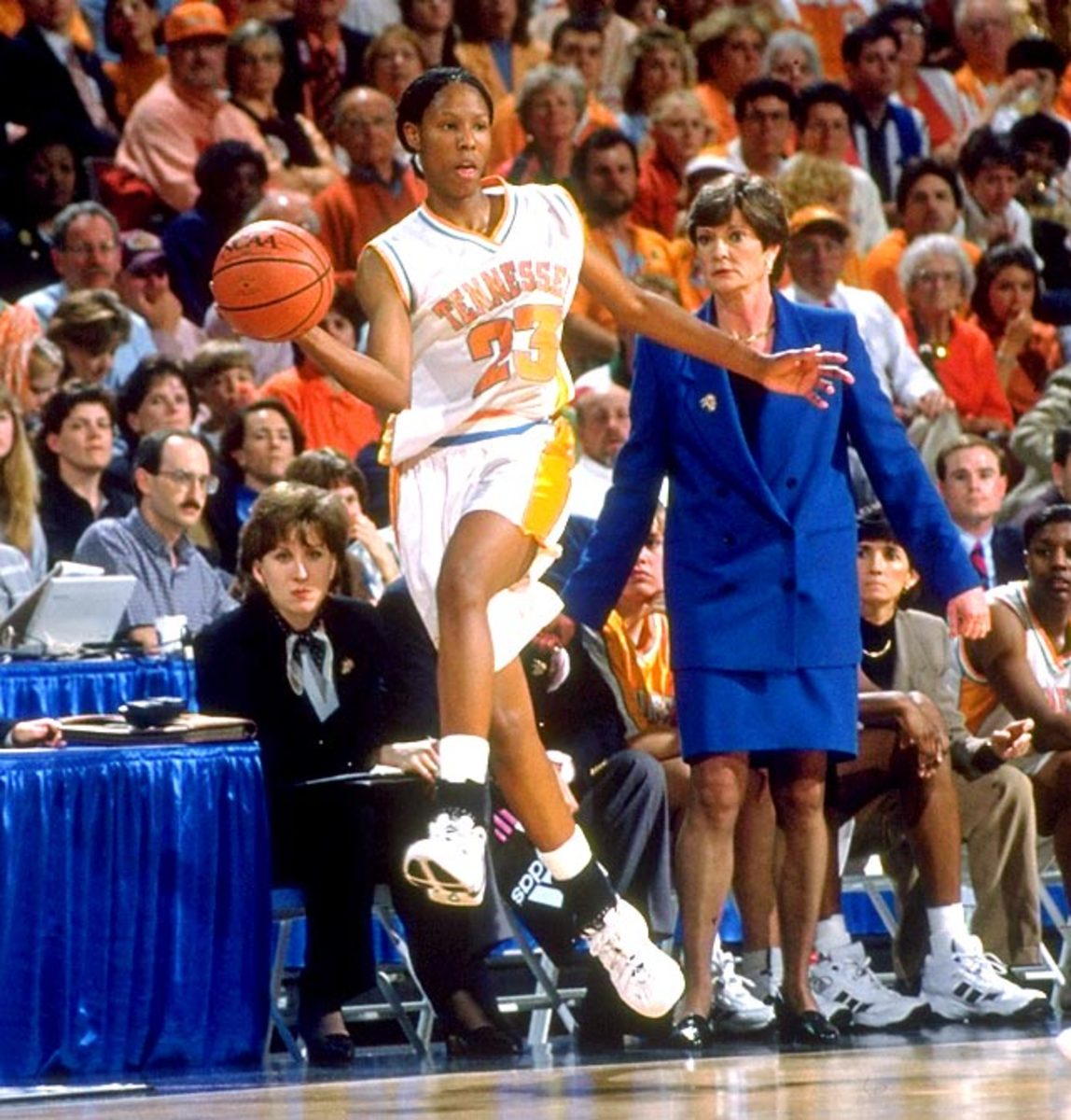
As the all-time leading scorer in SEC women's basketball history, Holdsclaw (3,025 career points) helped the University of Tennessee to an unprecedented three consecutive national championships from 1995 to 1998. She earned first-team All America honors four times, won the Naismith Award player of the year award twice and in 1999 became the first female basketball player to win the Sullivan Award as the nation's top amateur athlete. The Washington Wizards made her the No. 1 draft pick in 1999 to start a WBNA career that included a Rookie of the Year Award and six All-Star appearances. She retired from the WNBA in 2007 with 4,716 points, 12th most in league history.
Mary Decker Slaney
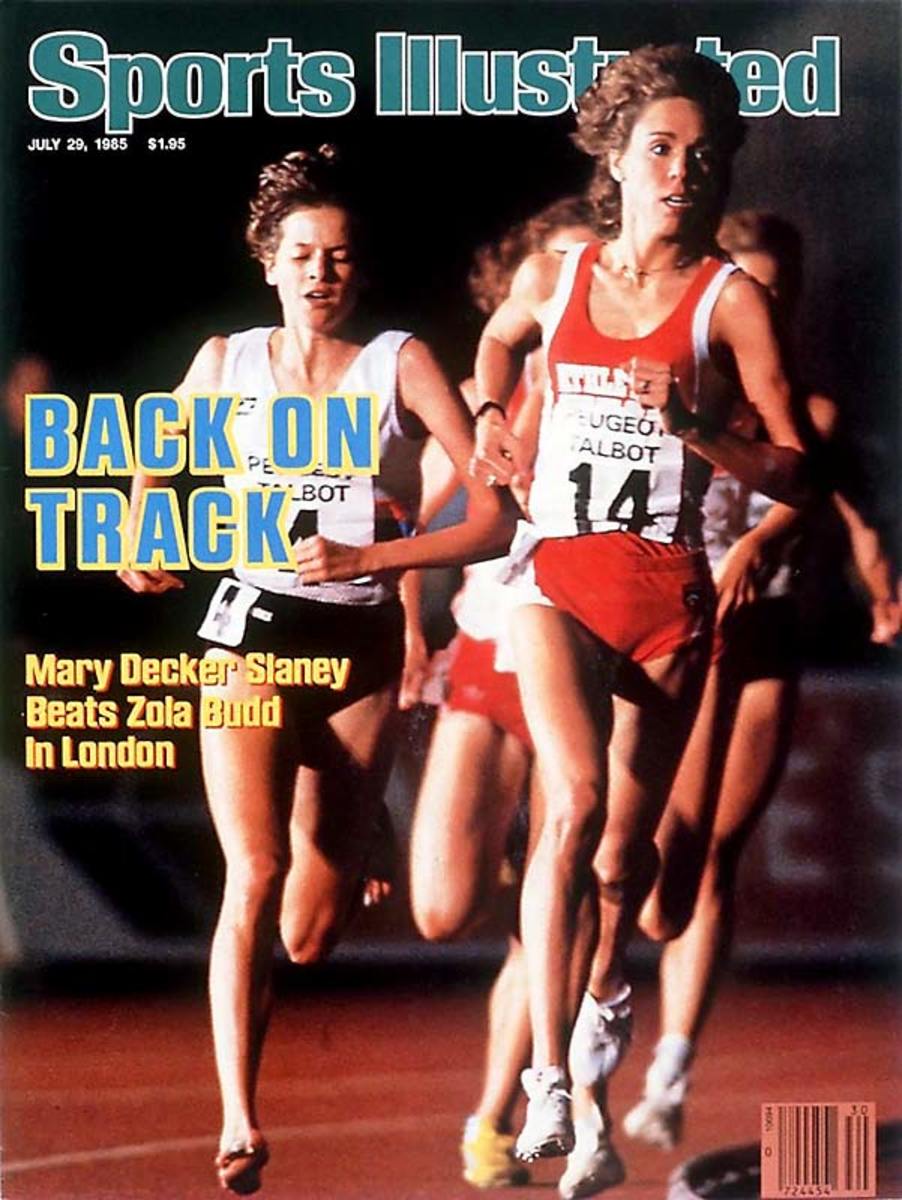
After stealing American hearts as a 14-year-old in braces and pigtails when she won the 800 meters in a 1973 USA v. USSR dual meet, Decker grew up to be the only runner -- male or female -- to hold every American record from 800 meters to 10,000 meters. In 1983, SI named her Sportsman of the Year. The former University of Colorado track star set 36 national records and 17 official and unofficial world records in multiple distances yet would become most famous for a race she didn't win: At the 1984 Olympic Games, Decker was heavily favored to medal in the 3,000 meters but got tangled up with South Africa's Zola Budd midway through the race. The image of Decker falling on the track remains the most indelible of her career.
Candace Parker
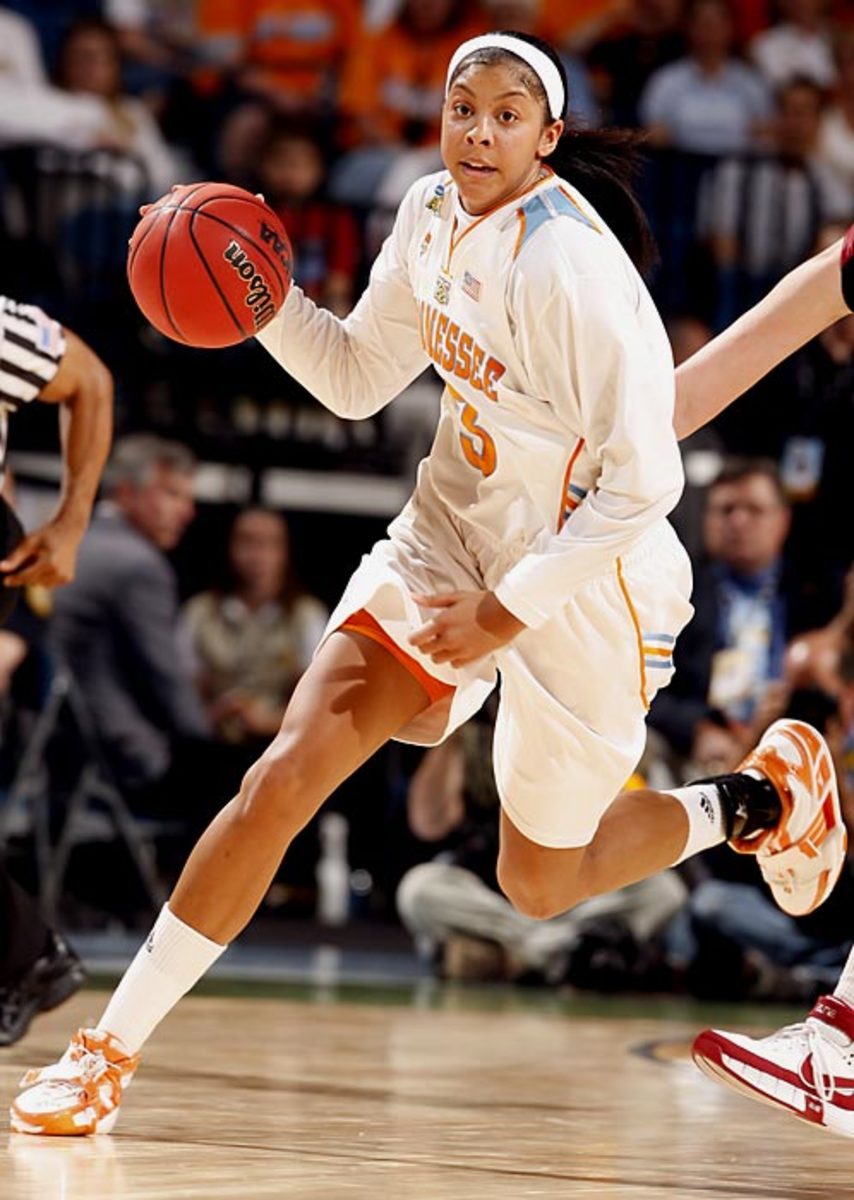
Before Candace Parker, dunking in basketball was a guy thing. But Parker, the younger sister of the NBA's Anthony Parker, proved women could do it too when she dunked not once, but twice in an NCAA Tournament game. Parker had a stellar collegiate career with the Tennessee Lady Vols; she won NCAA titles in 2007 and 2008, and won the Naismith College Player of the Year award in 2008. Parker was drafted first overall in the 2008 WNBA Draft by the Los Angeles Sparks.
Gail Devers
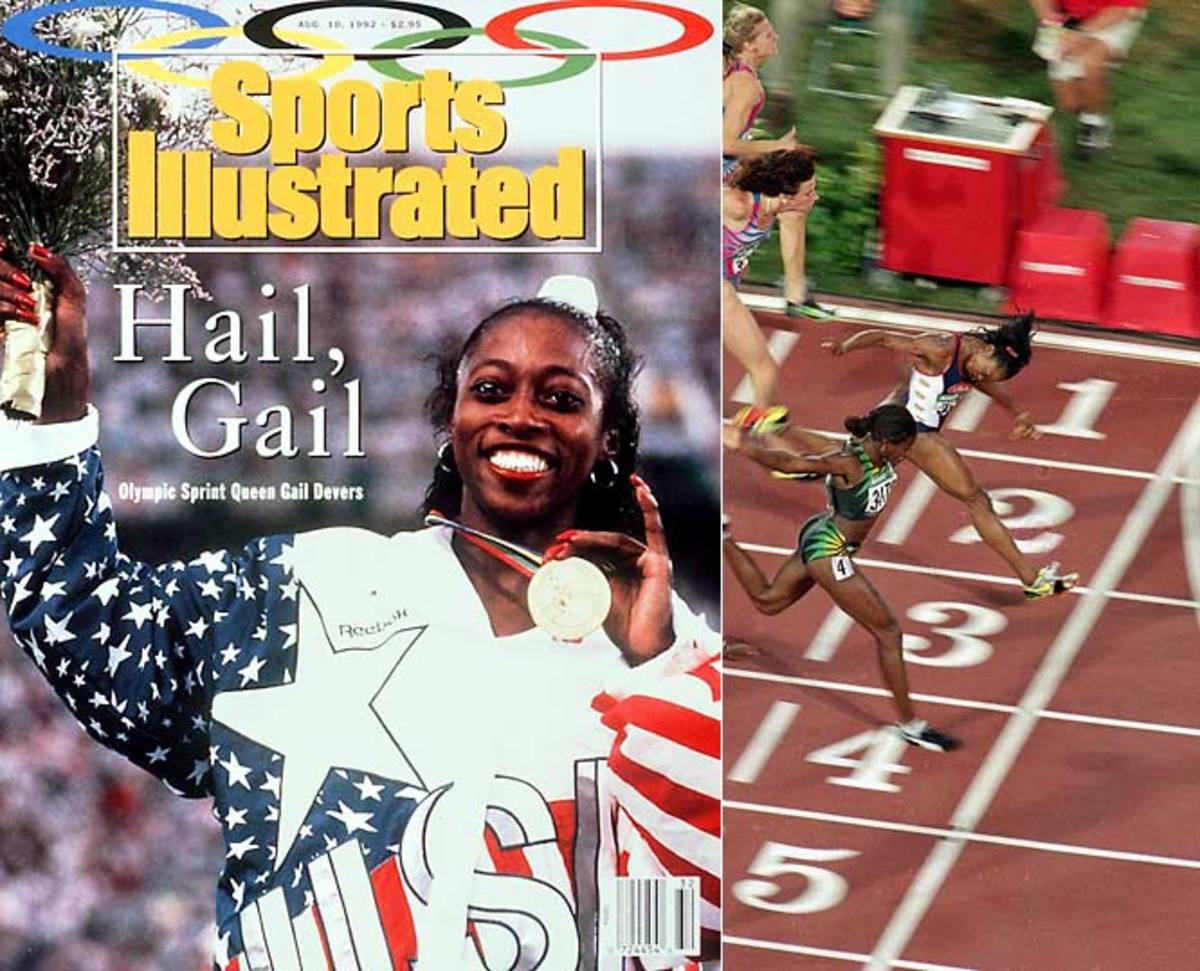
Most people know Gail Devers as "the sprinter with the long fingernails." Well, she didn't let her fingernails get in the way of winning back-to-back Olympic gold medals in the 100 meters in 1992 and 1996 (however, she did have to alter her start to accommodate them). Devers also ran on the gold-medal-winning 4x100 meter relay in 1996. Even though her favorite event was the hurdles, she never made it to the Olympic podium in that discipline.
Nancy Lopez
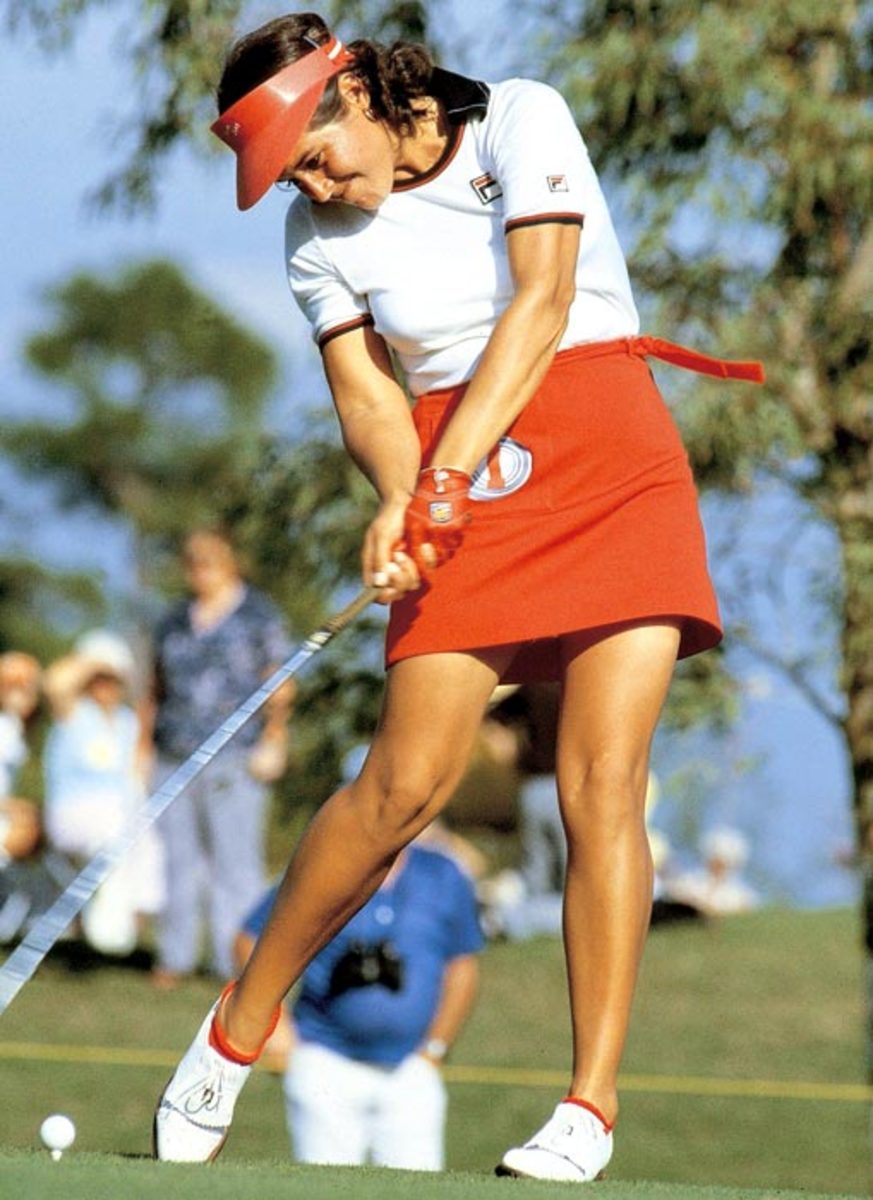
As a rookie in 1978, golfer Nancy Lopez played on of the most incredible seasons the LPGA has ever seen. She won nine tournaments, including five in a row, and is still the only person ever to win rookie of the year and player of the year, while also winning the Vare Trophy for the lowest scoring average in one season. She won three major championships, all at the LPGA Championship, in 1978, 1985 and 1989.
Tracy Caulkins
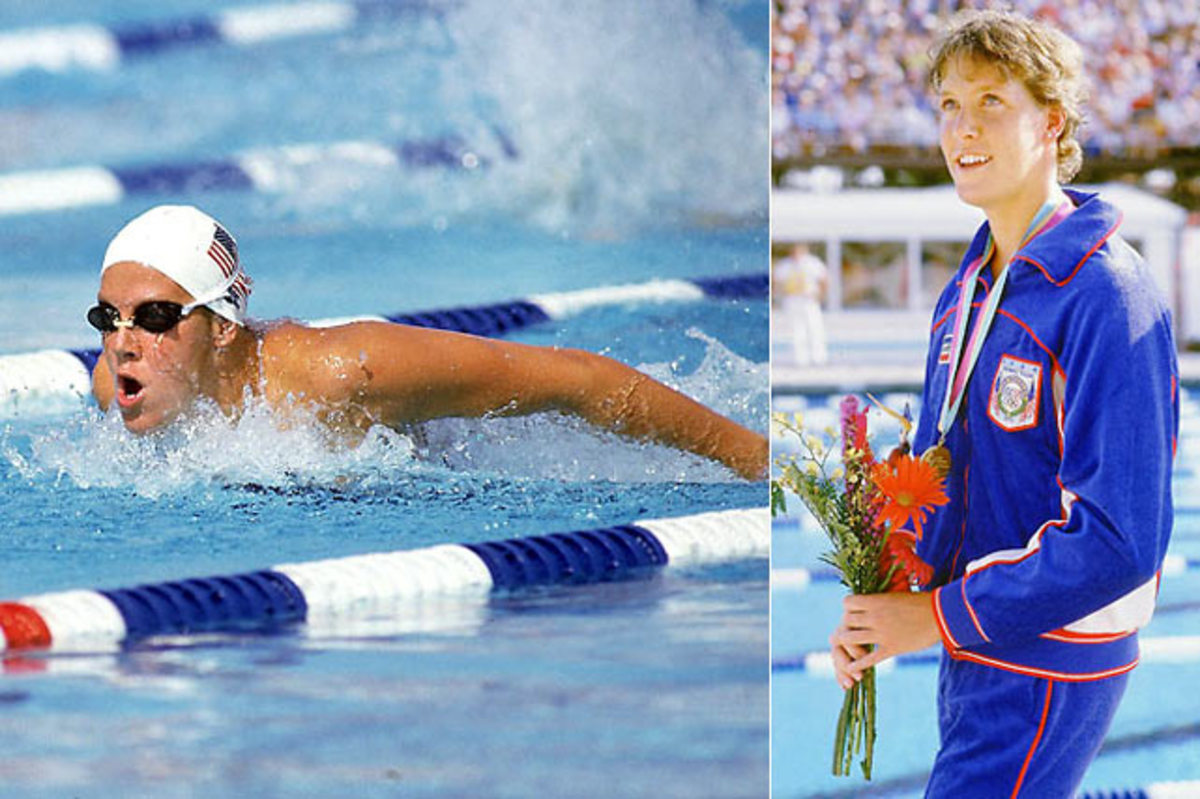
Tracy Caulkins' versatility as a swimmer still remains unmatched to this day. She won national titles in all four strokes as well as in the individual medley. She won five gold medals and a silver at the 1978 world championships, but missed her opportunity for Olympic glory when the U.S. boycotted the 1980 Games. She finally earned her hardware at the 1984 Olympics, when she won the 200- and 400-meter individual medleys and swam a leg of the U.S.' gold-medal-winning medley relay.
Michelle Akers
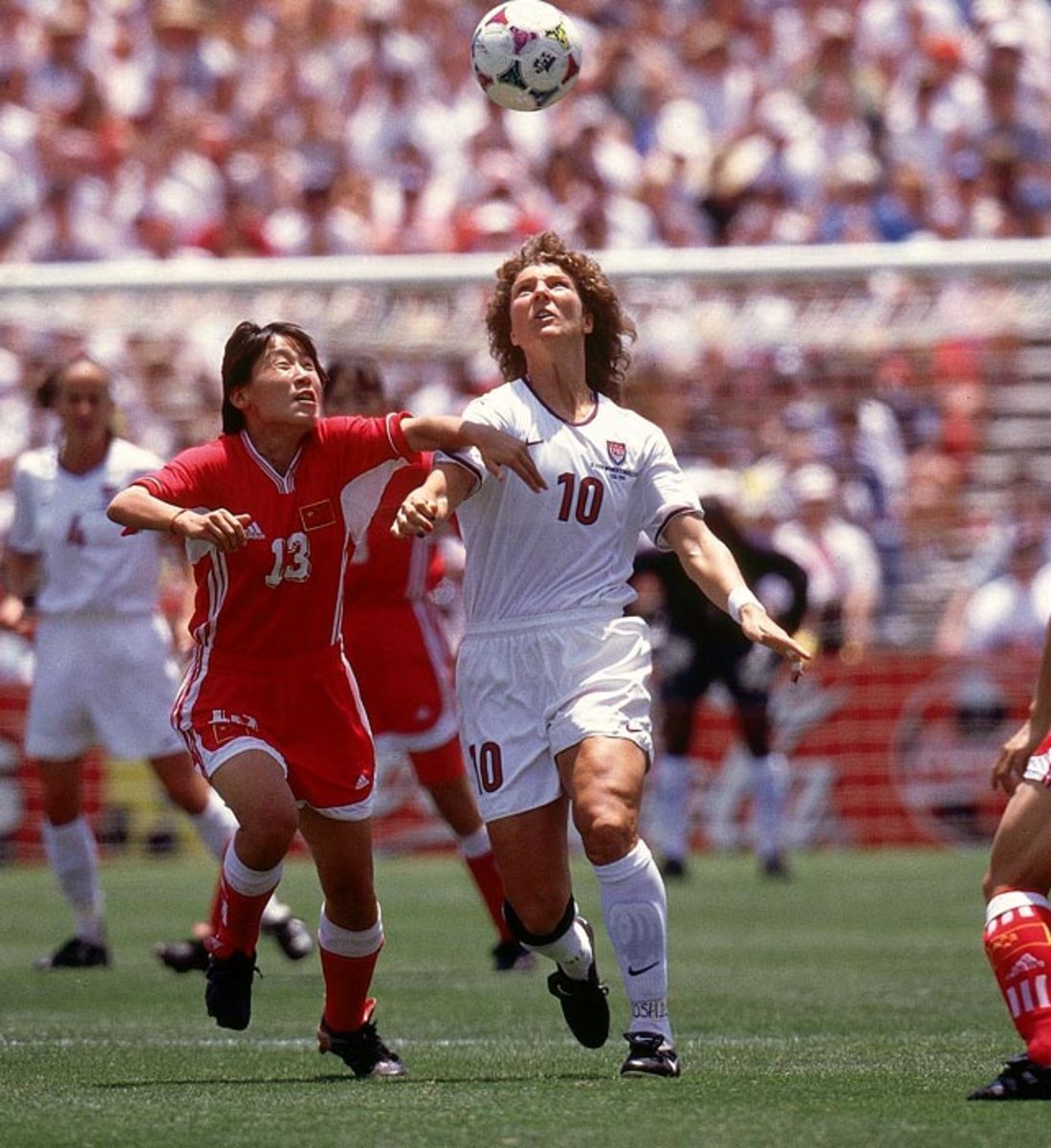
After a standout high school and college soccer career, Michelle Akers became a member of the first ever U.S. women's national soccer team, first assembled in 1985. She had a stellar career with the team, especially in the later years; she helped the U.S. win a gold medal at the 1996 Olympics, and three years later contributed to the U.S.' World Cup victory. Akers retired in 2000, just before the Olympics, as the U.S. National Team's second all-time leading scorer behind Mia Hamm.
Amy Van Dyken
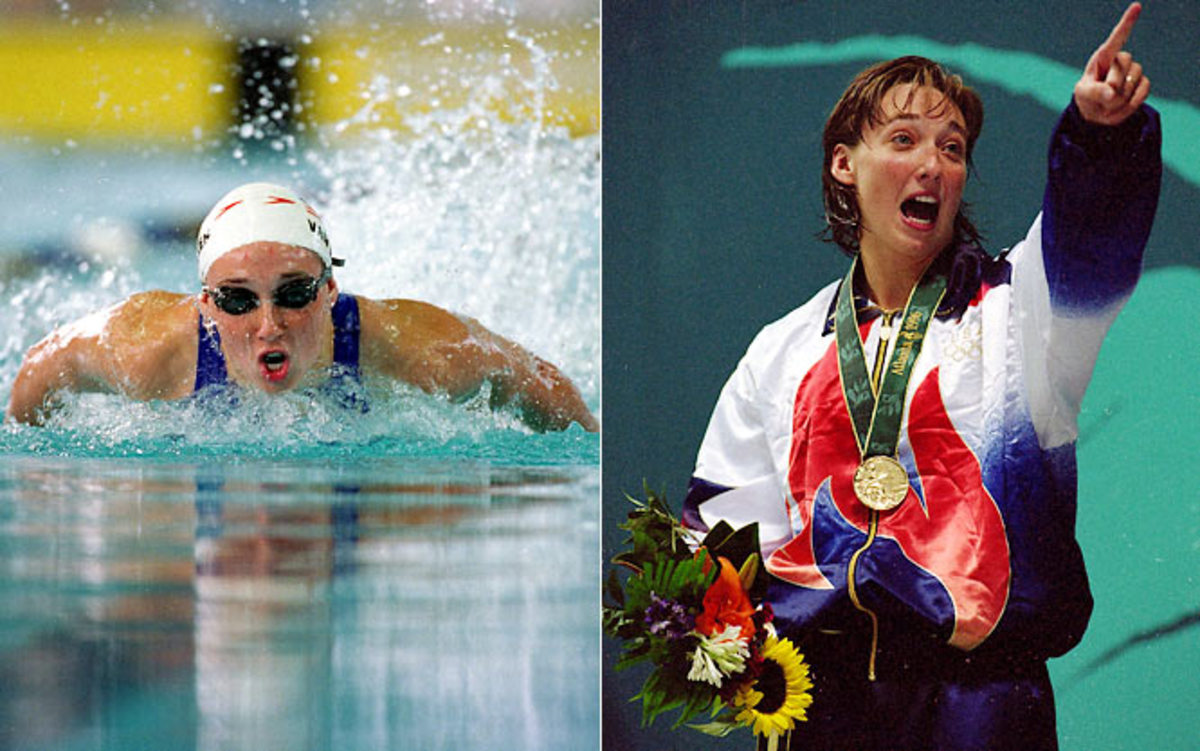
At the 1996 Olympics, Amy Van Dyken swam to gold in the 50m freestyle and the 100m butterfly, and as part of the 4x100m freestyle and medley relays. With her golden performance, Van Dyken became the first American woman to win four gold medals at an Olympics.
Ann Meyers
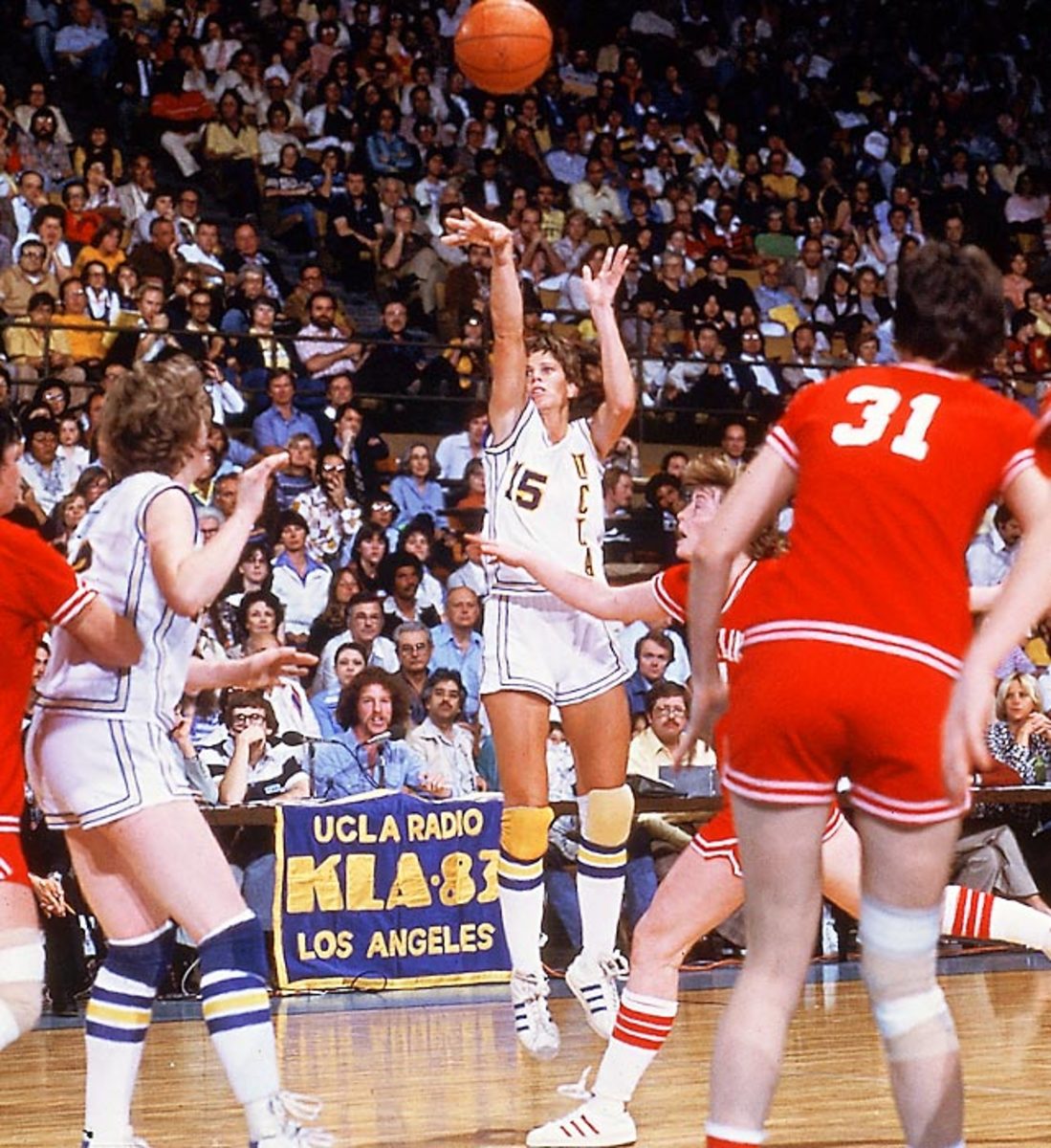
Ann Meyers didn't intend to be the pioneer for female athletes that she was, but she's credited with many firsts for women's basketball. She was the first high school player to make the U.S. women's basketball team, a member of the first women's Olympic basketball team, the first female named to four All-America teams and the first woman to sign a contract with an NBA team.
Janet Evans
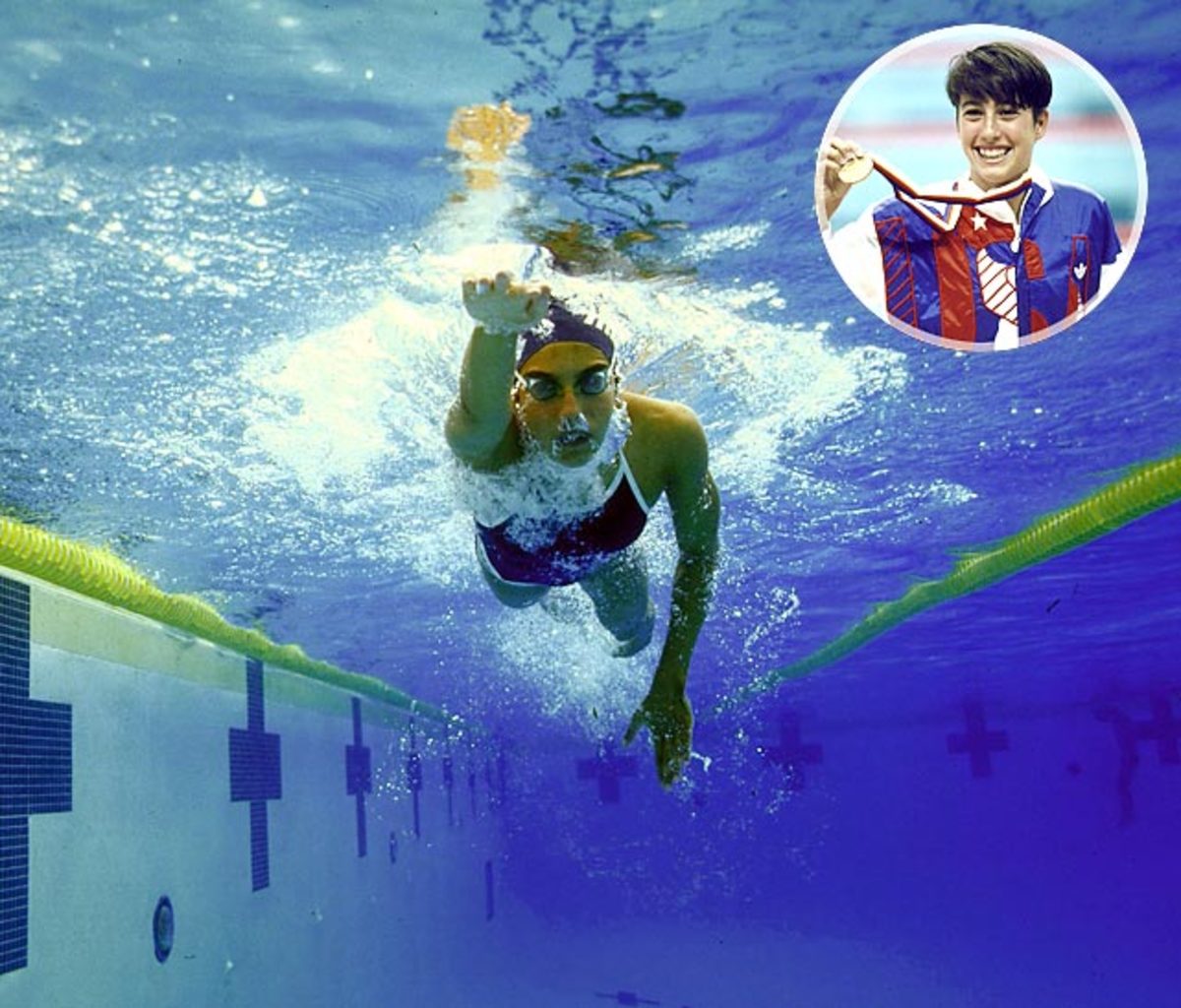
There has yet to be another swimmer to reach Janet Evans' success in the distance events. For eight straight years, Evans did not lose in the 800m freestyle and the 1,500m freestyle at any level of competition. At the 1988 Olympics in Seoul, Evans was the underdog against dominant distance swimmers from East Germany; at just 16 years old and 5'5", she appeared to be a fraction of their size. However, Evans grabbed gold in the 400m freestyle (in world record time), 800m freestyle (in Olympic record time) and the 400m individual medley. Evans is training to make a comeback for the 2012 Olympics in the 400m and 800m freestyles.
Lisa Fernandez
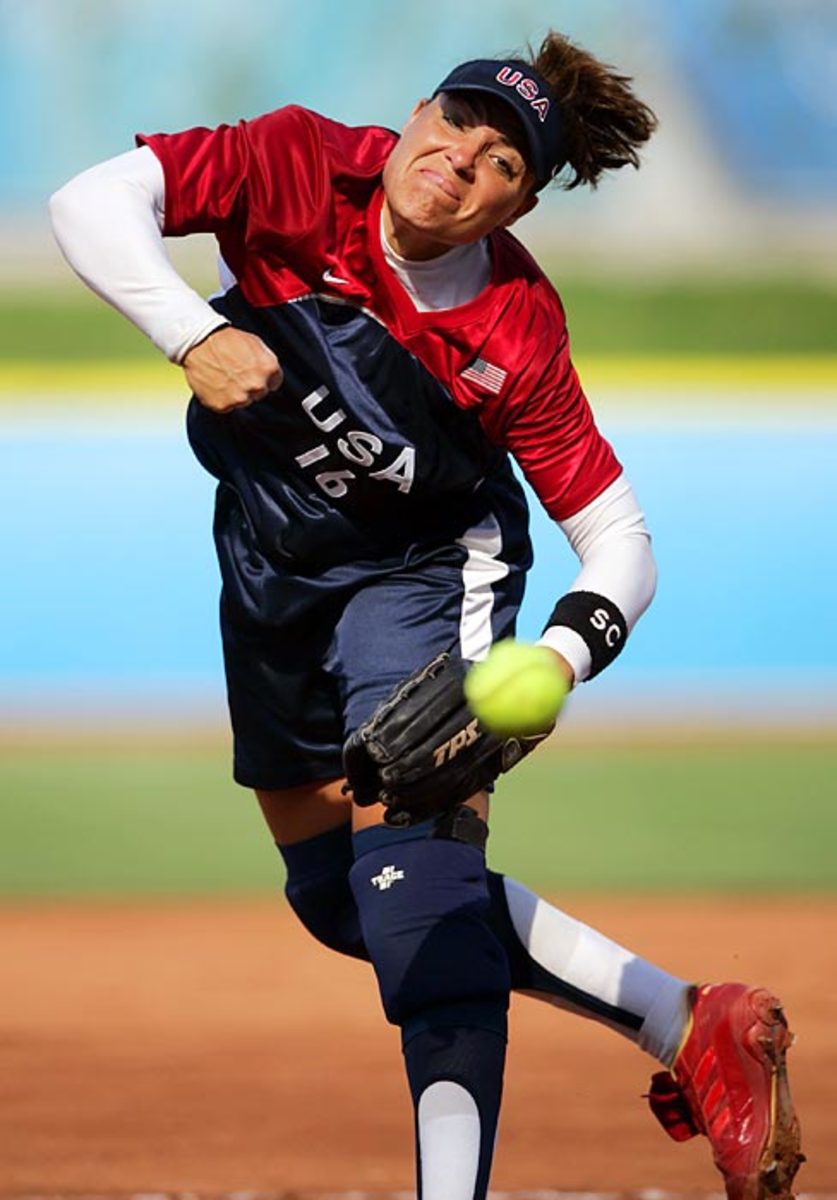
Lisa Fernandez, born the year before Title IX was passed, led the UCLA softball team to four straight NCAA championships appearances, beginning in 1990, and helped it to the national title in '92 and '90. She also led the U.S. softball team to three straight Olympic gold medals, in 1996, 2000 and 2004.
Teresa Edwards
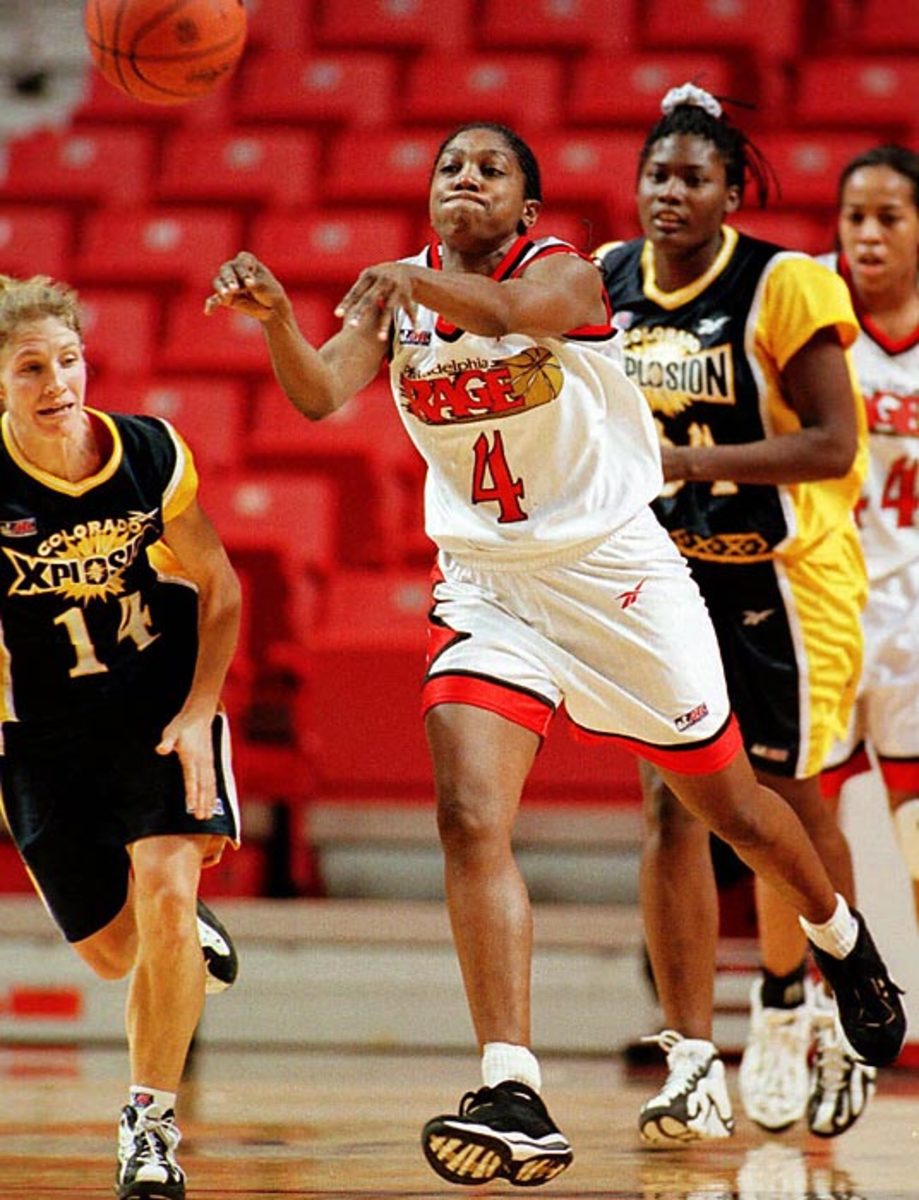
No female basketball player has been on more Olympic teams than Teresa Edwards, who played in five Games (1984, 1988, 1992, 1996 and 2000). She's won four gold medals and a bronze (in 1992). As point guard at Georgia, Edwards led the Bulldogs to two Final Four appearances and was a two time All-America. She was drafted by the Minnesota Lynx in 2003, but only played for two seasons.
Kerri Walsh (left) and Misty May-Treanor
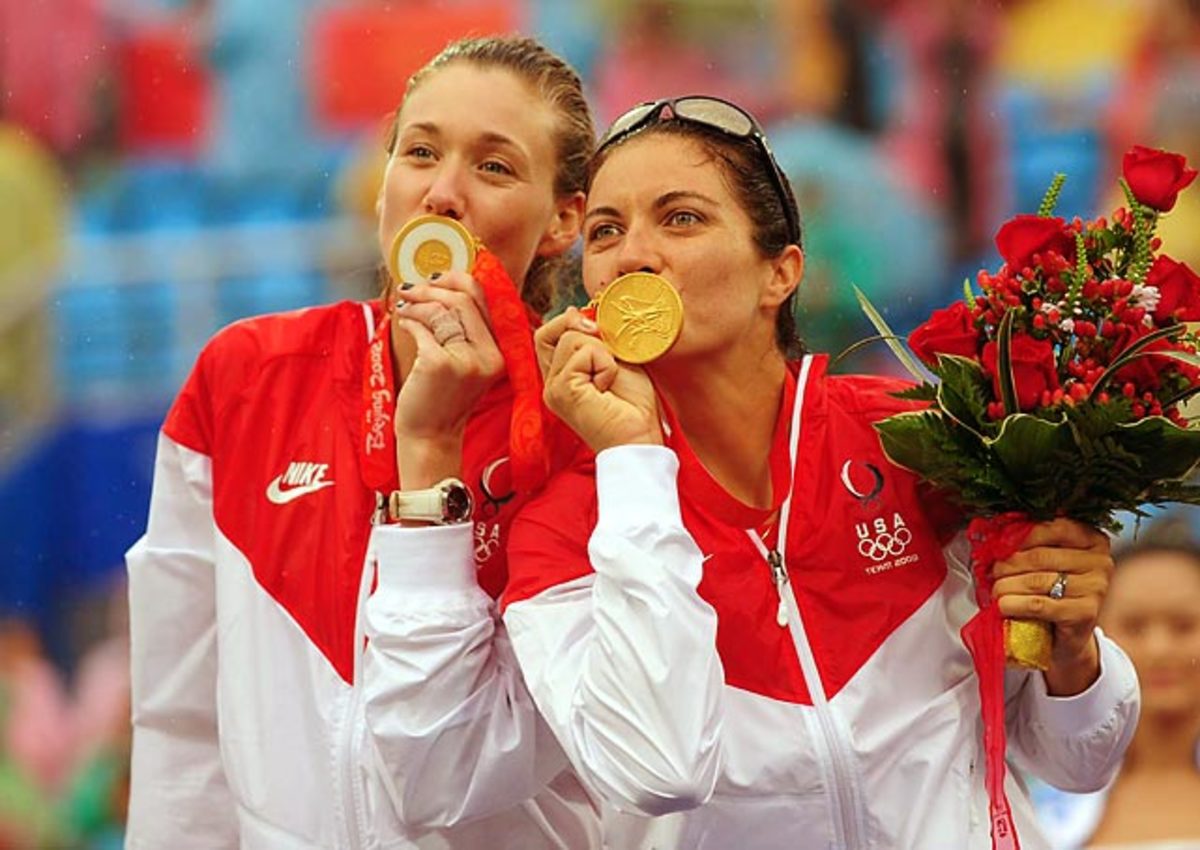
Misty May-Treanor and Kerri Walsh are arguably the best beach volleyball team ever. The duo paired up for the 2001 season, and dominated the AVP and FIVB beach volleyball tours -- they won 89 straight games during the 2003-2004 season before winning their first of two Olympic gold medals.
Cheryl Miller
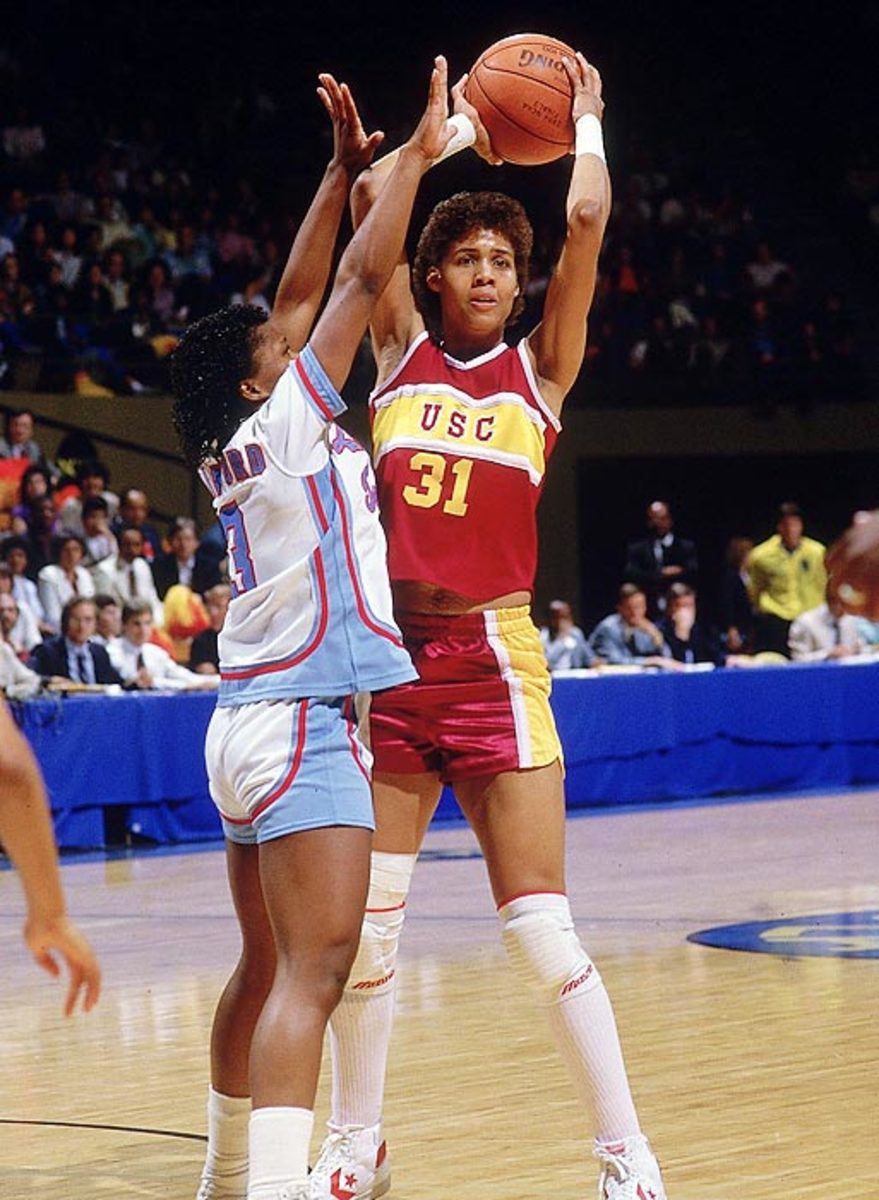
As a women's collegiate basketball player, there was very little Cheryl Miller did not achieve. A four-time All America, three-time Naismith College Player of the Year award winner, two-time NCAA Tournament MVP and Wade Trophy winner during her years at Southern Cal, Miller has been called the best player the game has ever had. On a larger stage, she helped lead the U.S. to a gold medal at the 1984 Olympics in Los Angeles. Her outrageous athletic ability and knack for the game had a certain flair to it, allowing her to help lift the game to a higher level.
Joan Benoit-Samuelson
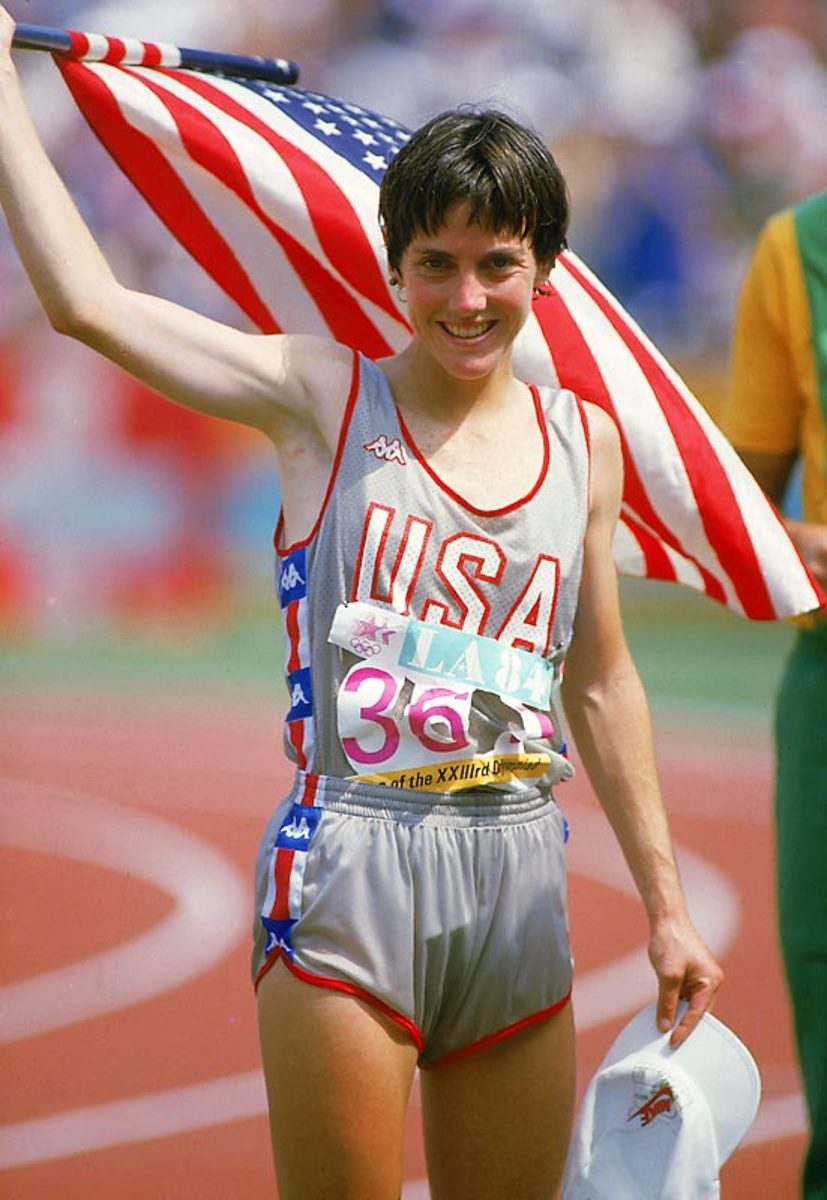
When the women's marathon was added to the Olympics in 1984, Joan Benoit-Samuelson became the first female gold medalist. Despite battling the warm weather of Los Angeles and lingering pain from arthroscopic knee surgery, Benoit-Samuelson came through the tunnel of the L.A. Coliseum first to win the event in 2:24:52. Just a year later, she set an American record of 2:21:21 in the Chicago marathon that stood for 18 years. She continued to run even after her elite years were over -- her 1998 New York City Marathon time qualified her for the 2000 Olympic Trials.
Florence Griffith-Joyner
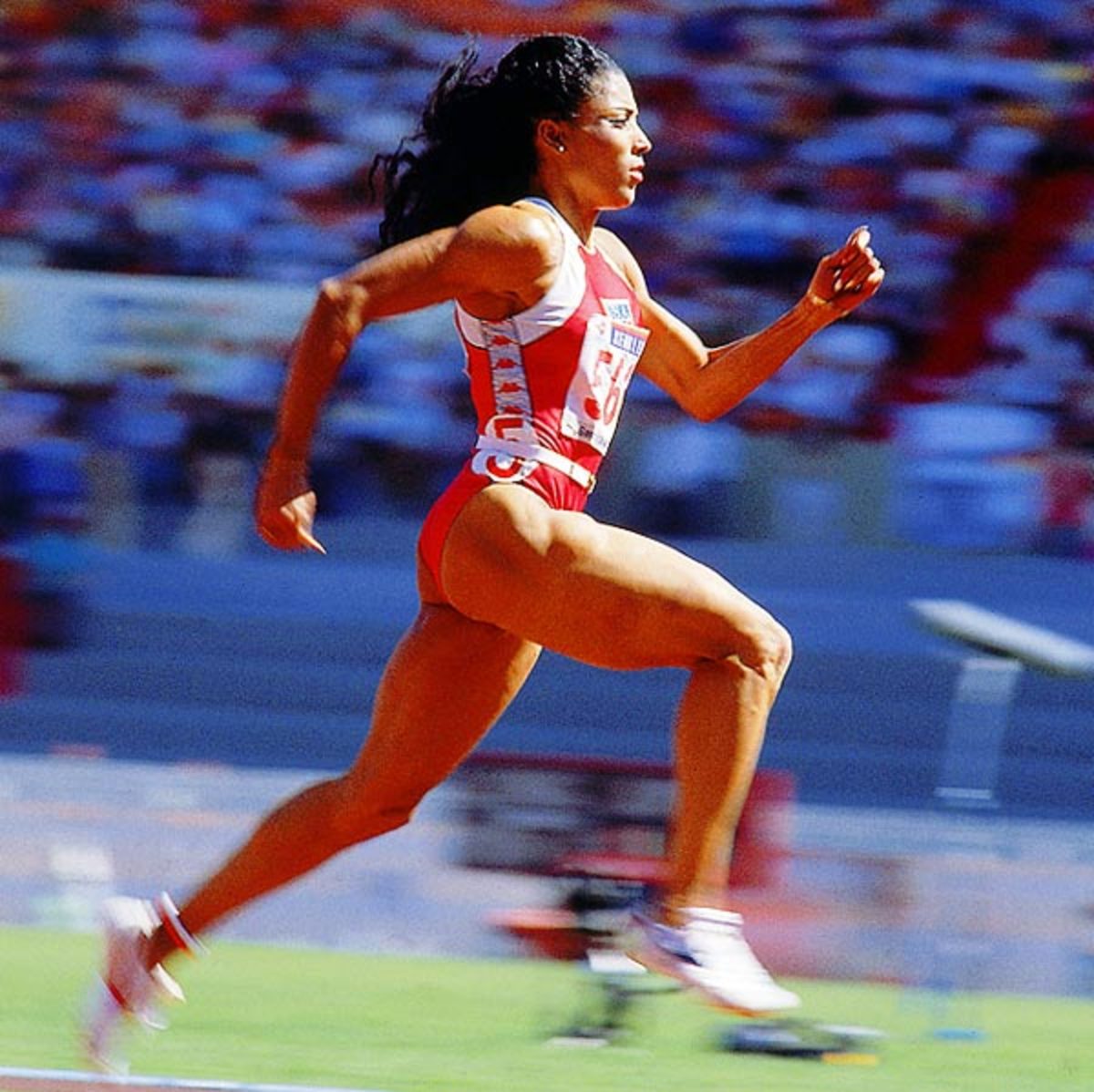
At the 1988 Olympics, all eyes were on Flo-Jo not just for her style, but also for her athletic performance. She won gold in the 100 and the 200 meters in world record times, both of which still stand. Flo-Jo died of a heart seizure a decade later.
Mary T. Meagher
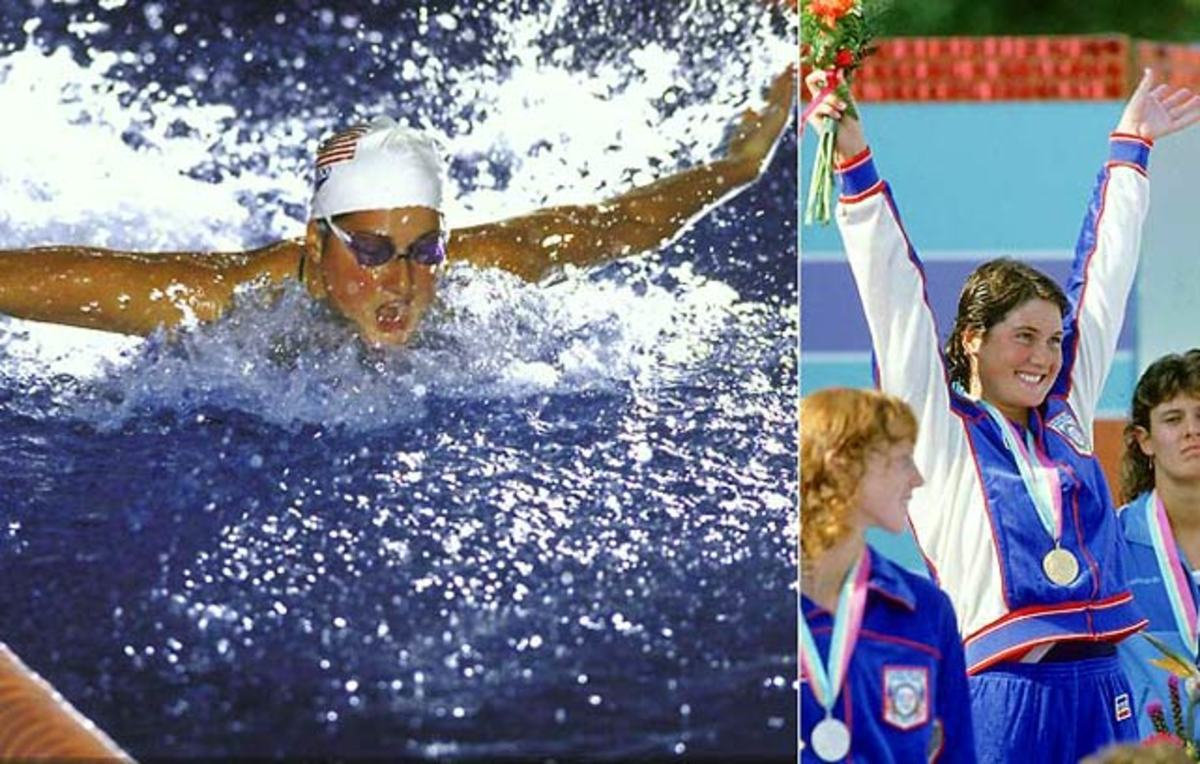
After being denied the opportunity to compete at the Olympics in 1980 due to the boycott, Mary T. Meagher broke the world records in the 100m and 200m butterfly in 1981. Those world records, both of which stood for nearly 20 years, are considered two of the most dominating swims ever. Meagher finally got her shot at Olympic glory in 1984, where she collected three gold medals in the 100m and 200m fly and the 4x100m medley relay.
Annika Sorenstam
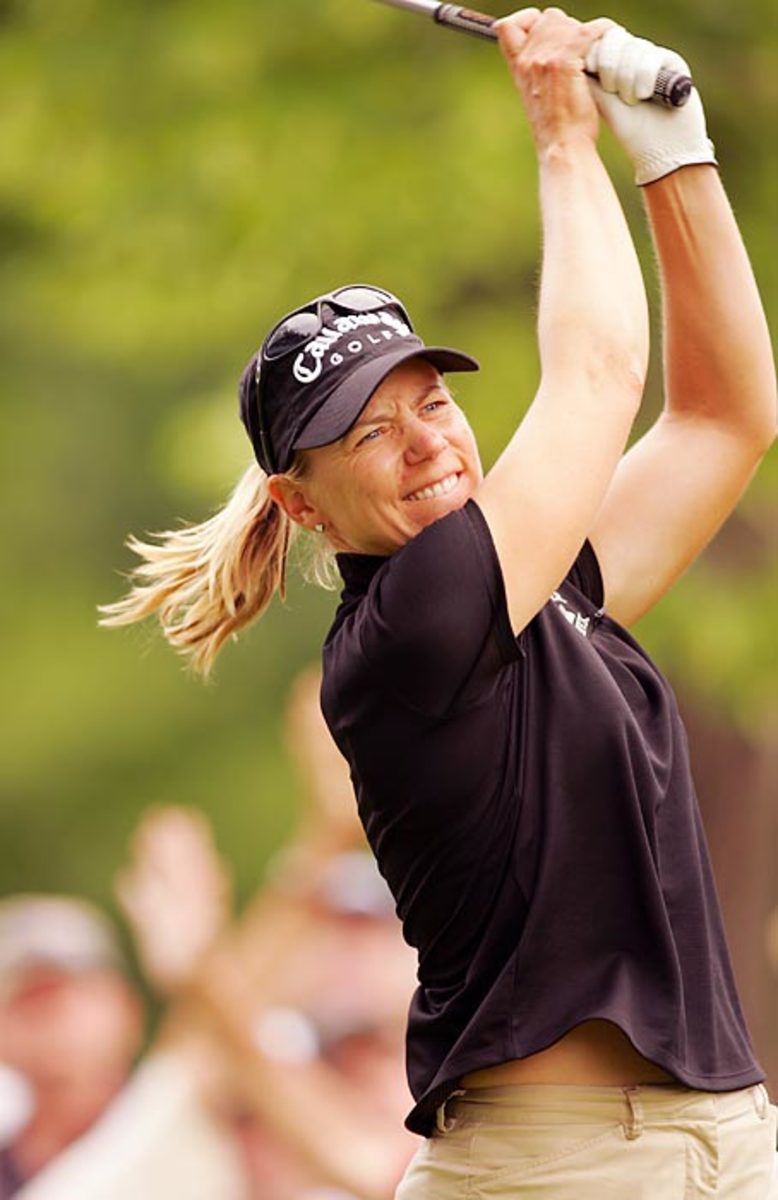
Annika Sorenstam is hailed as one of the most successful female golfers ever. During her 17-year career as a professional, she racked up 90 tournament wins, and still sits atop the LPGA's career money list. One of her crowning moments game in 2003, when she became the first woman to play in a PGA Tour event.
Diana Taurasi
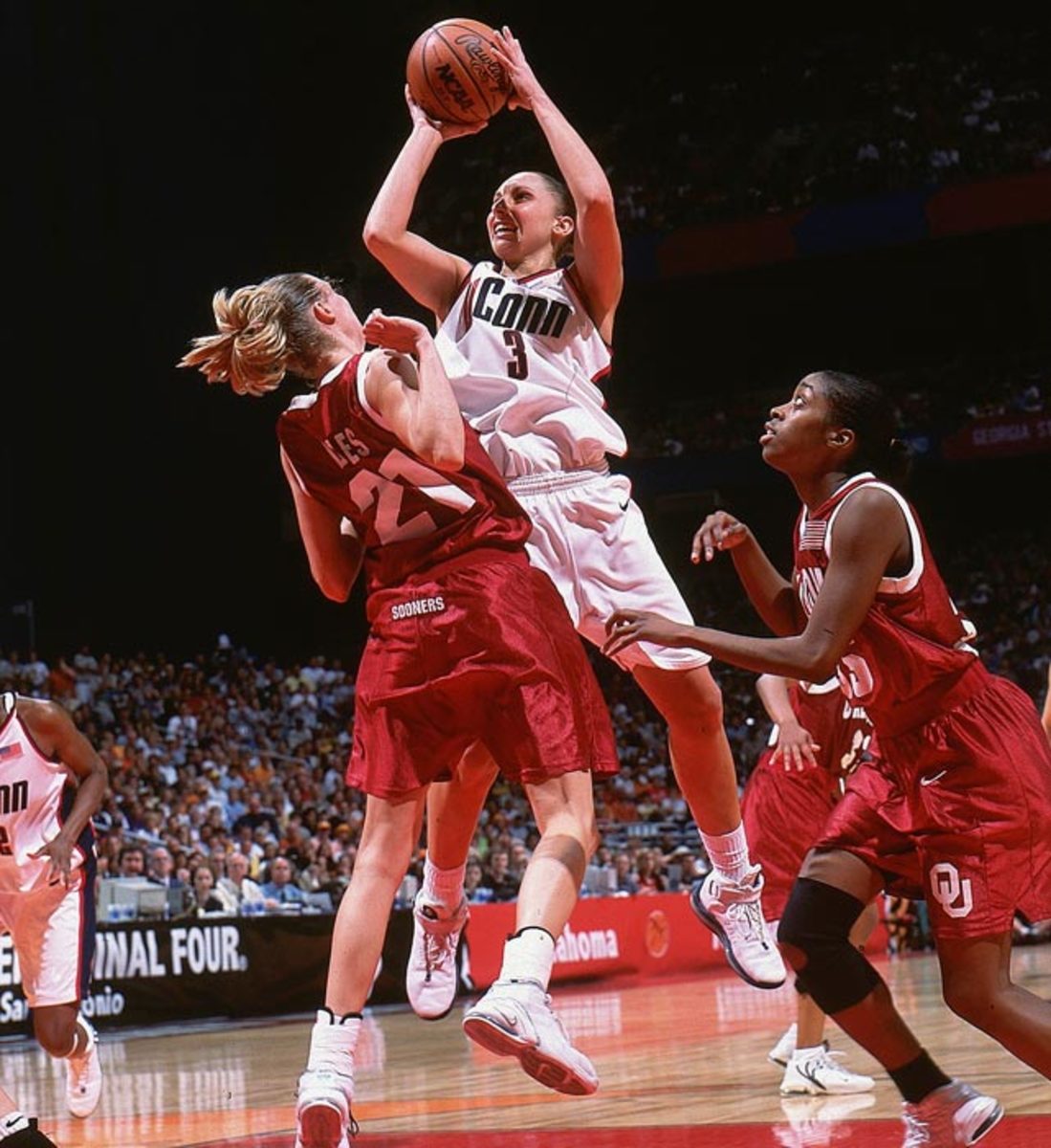
After a stellar college career, in which she led UConn to three straight NCAA championships, Diana Taurasi took her aggressive style of play to the WNBA, forcing everyone to pay attention. Taurasi won Rookie of the Year her first season and has been named to the All-WNBA First Team and WNBA All-Star team five years. In 2009, Taurasi was named WNBA MVP and Finals MVP. She also helped the U.S. to Olympic gold in 2004 and 2008.
Mia Hamm
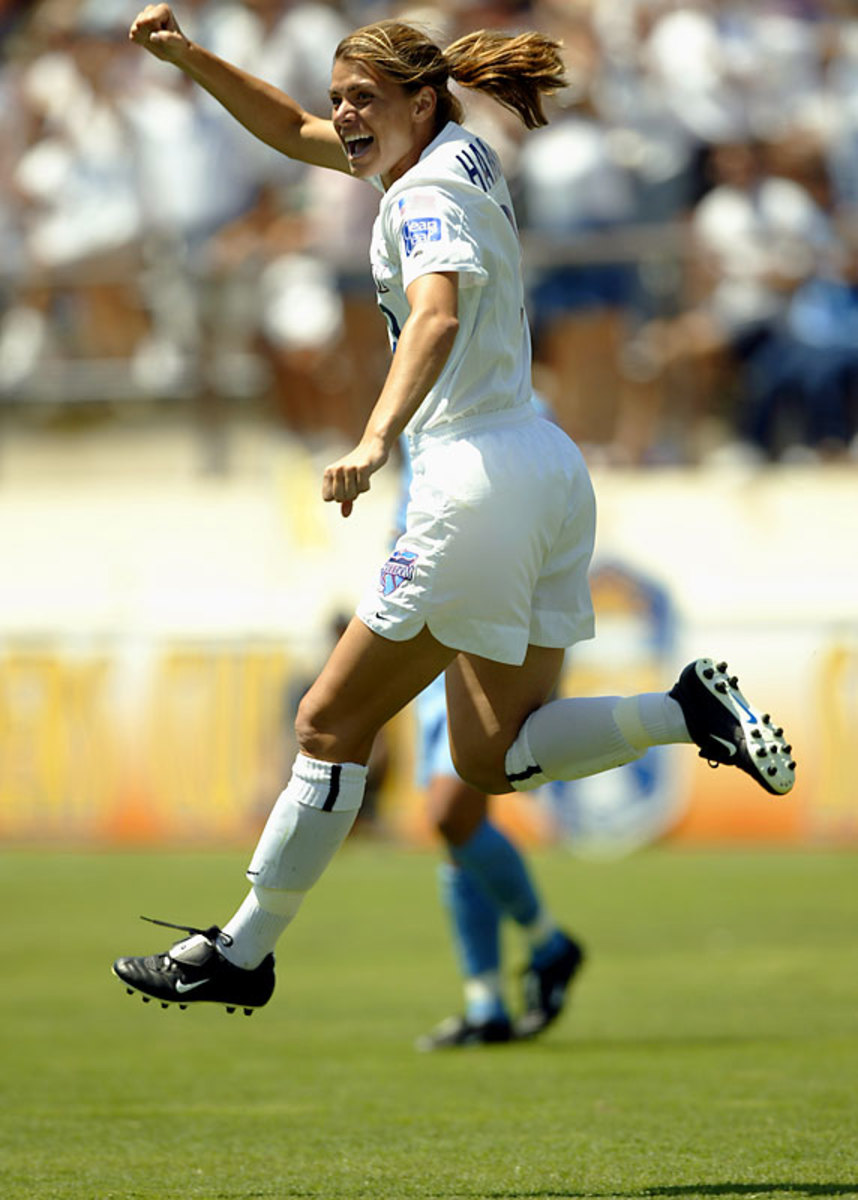
Born in 1972, the same year Title IX was passed, Mia Hamm is the definition of a Title IX baby. Hamm was named to the U.S. women's soccer team at 15, making her the youngest national team player in history. She helped the team win two World Cup titles and two Olympic gold medals during her 17-year national-team career, and brought incredible visibility to women's soccer. Hamm was also one of the founders of the first women's professional soccer league, which folded after three seasons. She retired from soccer in 2004 as the all-time leading scorer in international play, male or female, with 158 goals.
Jackie Joyner-Kersee
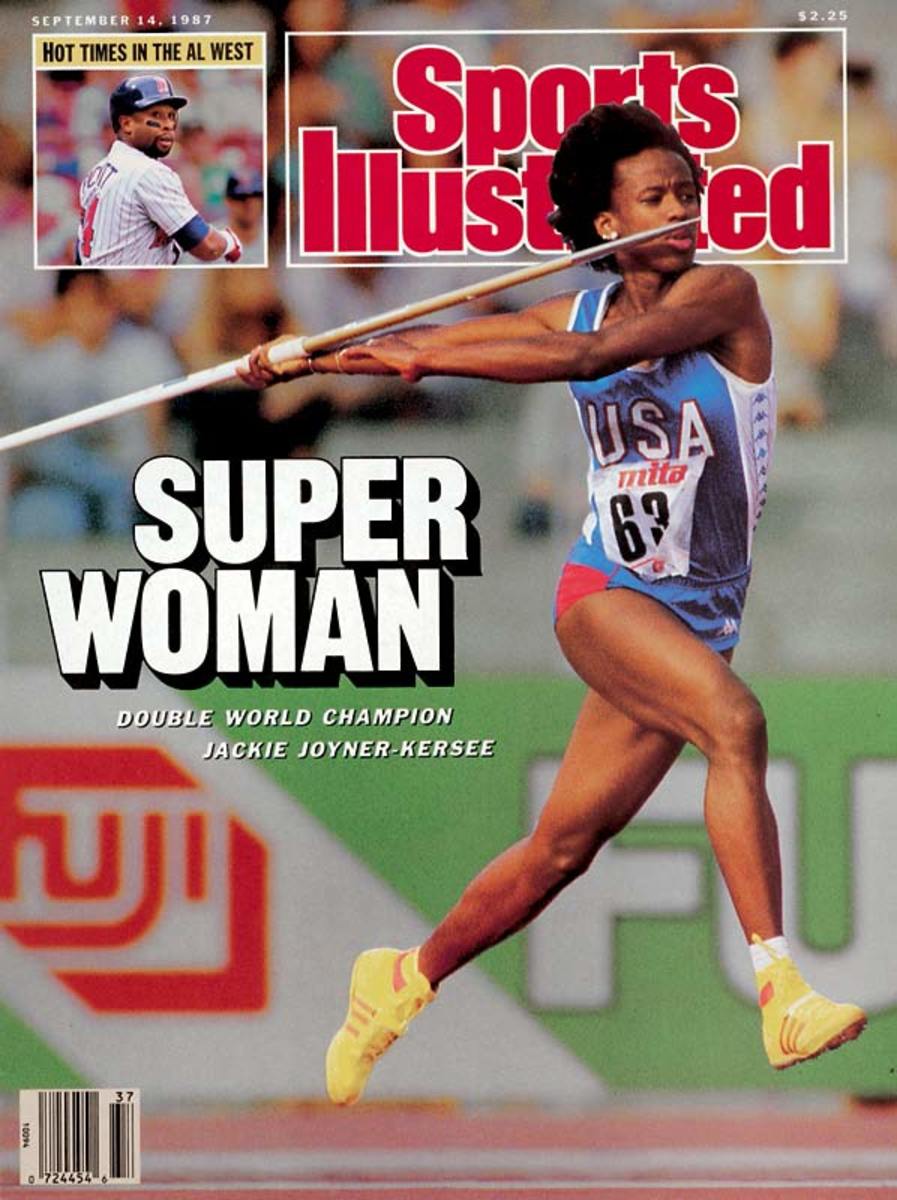
Jackie Joyner-Kersee is considered by some to be the greatest female athlete of the 20th century. Just 10 when Title IX was passed, she developed into an elite athlete at the beginning of a new era for women's sports. She embodied the identity of a female athlete, and was a role model for women all over the world. Joyner-Kersee won six medals over the span of four Olympics, including three gold in the heptathlon and long jump. At UCLA, Joyner-Kersee was a track and basketball star, scoring more than 1,000 points in her career.
